
11-Feb-2026
Stay informed about the latest updates, activities, branch events, and upcoming programmes of the Institute through the IIPA Newsletter....
Tripathi Surendra Nath
Source: Newsletter
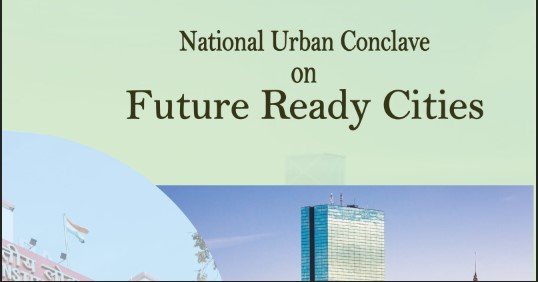
30-Jan-2026
Urban areas, as elsewhere, are emerging as nerve centres of economic growth in India. Urban India, contributing nearly two-thirds of the national inco...
Lata Kusum, Singh Amit Kumar
Source: Reports
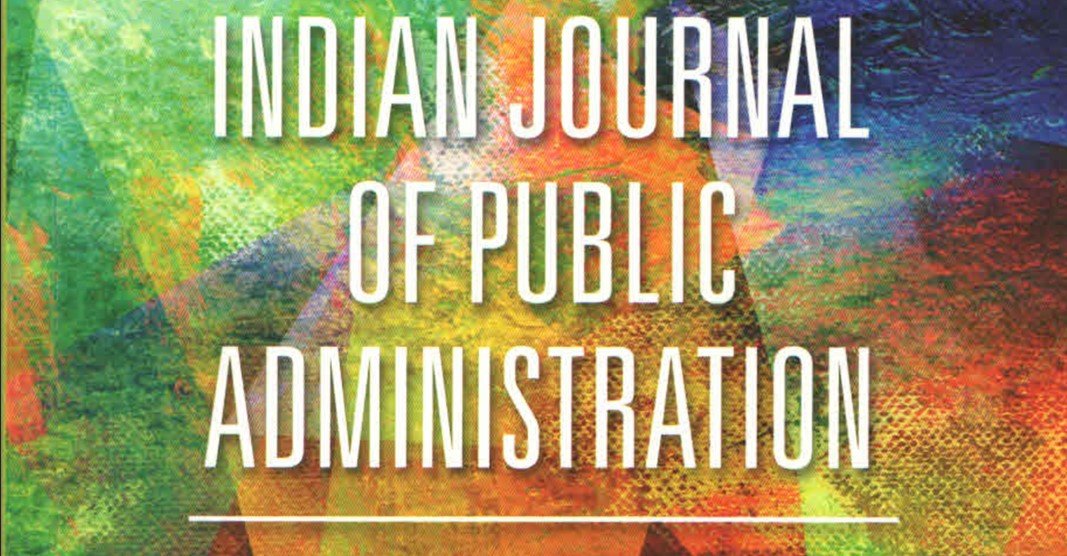
30-Jan-2026
Effective screening and selection methods can potentially improve workforce quality. This paper investigates the effect of changing the job entrance m...
Apastamb Kunal
Source: Journals

30-Jan-2026
The primary focus of disaster-related literature historically has been on natural disasters due to their severity. There is less than sufficient focus...
Mishra O P
Source: Journals

30-Jan-2026
Securing access to safe drinking water remains a critical challenge, particularly in rural regions. Community participation offers a promising approac...
Madhav M. Venu
Source: Journals

30-Jan-2026
Health decentralisation is a dynamic tool for providing quality and inclusive healthcare. The effectiveness of the administration of an institutional-...
Nanjunda D.C.
Source: Journals

30-Jan-2026
Recognising the need for transparency and accountability to build stake-holders’ confidence, public service organisations worldwide have been underg...
Jain Manjusha
Source: Journals

30-Jan-2026
In the contemporary digital landscape, the convergence of technological advancements and societal dynamics has engendered a paradigm shift, necessitat...
Katkuri Srinivas
Source: Journals

30-Jan-2026
The Right to Information (RTI) Act 2005 passed with great fanfare as a path-breaking legislation by the then government completed a journey of 19 year...
Singh Renu
Source: Journals

30-Jan-2026
In India, in keeping with constitutional provisions, some states have started prescribing educational qualification criteria for candidates contesting...
Joshi Gaurav, Joshi Amit, Pant Abhishek Kumar
Source: Journals

30-Jan-2026
The period between polling and the final count of votes is one of the most suspenseful phenomena. Parties eagerly await results after months of campai...
Lobow Nathan Marcus
Source: Journals

29-Jan-2026
The legitimacy of the executive in parliamentary democracy comes from Parliament. The Parliamentary system envisages an accountable executive collecti...
Vikas Tripathi Rupak Kumar
Source: Journals

29-Jan-2026
Political stability, defined in terms of stability in government and the absence of violence and conflict within the country, is a vital institutional...
Kumar Gulshan, Kaur Sandeep
Source: Journals

29-Jan-2026
The state has to respond to the changing socio-economic and environmental conditions, implying that not only does it need to make existing systems and...
Chowdhry Sachin
Source: Journals

29-Jan-2026
According to the 2024 Lok Sabha elections’ results announced on 4 June, no single party was able to get the majority number required to form the gov...
Singh Survesh Pratap
Source: Journals

29-Jan-2026
Maya, Modi, Azad: Dalit Politics in the Time of Hindutva by political scientists Sudha Pai and Sajjan Kumar is a narrative-based account of how the ri...
Ranjan Rupesh
Source: Journals

29-Jan-2026
The year 2024 was marked by celebrations of the most awaited festival of democracy, especially elections across the globe....
Sah Drishti
Source: Journals

29-Jan-2026
A Genuine Attempt at Decoding the Status of Public Administration Education in India...
Chathukulam Jos
Source: Journals

29-Jan-2026
The term ‘globalisation’ has become very prevalent in many contexts. It has increased integration between markets for goods and services capital a...
Kumar Vikash
Source: Journals

29-Jan-2026
Using information and communication technologies (ICT) to carry out transactions, share information and provide government services is known as electr...
Sathisha, Katti Medhavini S.
Source: Journals

29-Jan-2026
The original forty-four central labour laws in India have been merged into four labour codes: the Code on Wages, 2019 (CoW); the Industrial Relations ...
Krishna Niyathi R.
Source: Journals

29-Jan-2026
This study examines the evolving landscape of public services in Faridabad, Haryana, with a specific focus on women’s police cells (WPCs)....
Dogra Twinkal, Kumar Ashish
Source: Journals

29-Jan-2026
Using panel data analysis based on annual reports of major oil companies (OMCs), namely Bharat Petroleum Corporation Limited, Hindustan Petroleum Corp...
Taneja Pawan Kumar, Taneja Shallini, Kashyap Anmol
Source: Journals

29-Jan-2026
The merger of the separate Railway Budget with the General Budget marks a significant stride in the structural reforms within the Indian railways.&nbs...
Kumar Sanjiv
Source: Journals

29-Jan-2026
This article examines the progress of the Swachh Bharat Abhiyan’s first phase (2014–2019). In 2013, 53% of the Indian population defecated in the ...
Singh Tanushree, Anand Beryl
Source: Journals

29-Jan-2026
The article examines the introduction of information and communication technology (ICT) in India’s judicial system and its implications on judicial ...
Babu D. Ravindra Satish
Source: Journals

29-Jan-2026
This article delves into the principles of Rajdharma as conceptualised in the text of the Mahabharata...
Bansal Neena
Source: Journals

29-Jan-2026
Dr B.R. Ambedkar is a leading figure in the modern Indian sociopolitical scenario. His contribution to the Indian Constitution is well recognised....
Sharma Manoj, Choudhary Nitin Kumar
Source: Journals

29-Jan-2026
This study investigates the flooding and land erosion problems in Assam, with a specific emphasis on the June 2022 floods and the persistent difficult...
Gogoi Chuchengfa, Das Silu, Senapati Tulika, Narah Uttam
Source: Journals

29-Jan-2026
The increasing occurrence of tsunamis and cyclones, attributed to climate change, has heightened the vulnerability of coastal communities to natural d...
Kumbhar Sitaram
Source: Journals

29-Jan-2026
The Arctic region is becoming significantly more accessible due to the changing climate, increased availability of resources and the geopolitical and ...
Singh Shyamli, Rastogi Saurabh, Singh Anugya
Source: Journals

29-Jan-2026
India has taken on the task of a calibrated phasedown of coal for its energy generation needs in line with its net zero commitment by the year 2070....
Biswas Nandini, Dey Shubhashis
Source: Journals

29-Jan-2026
This article underscores the idea of the public state for public policy in the context of neoliberalism and precarity. ...
Rai Dhananjay
Source: Journals

29-Jan-2026
The nature of public policies is influenced by the overall ecosystem of the country. Why, when and how should the state intervene has been the focus o...
Chowdhry Sachin
Source: Journals

28-Jan-2026
Bala Subrahmanya, M. H. (2021). Entrepreneurial ecosystems for tech start-ups in India: Evolution, structure and role. Gruyter. 179 pp....
Mishra Meena
Source: Journals

28-Jan-2026
The term ‘governance’ is a topical way to describe the structures and processes of the government and administration. ...
Dhameja Alka
Source: Journals

28-Jan-2026
Secularism is a concept no less than an unresolved puzzle to academia. Scholars like Ashish Nandy, T. N. Madan and Sita Ram Goel view secularism as a ...
Sumbria Vanshika
Source: Journals

28-Jan-2026
The COVID-19 pandemic introduced us all to the harsh realities of under- preparedness and the ground realities of disasters. ...
Lamarr Kheinkor
Source: Journals

28-Jan-2026
Prakash Kashwan, the editor of Climate Justice in India, examines the intersections of climate change, social justice and governance in this volume....
Chauhan Anjali
Source: Journals

28-Jan-2026
Sanjeev Chopra’s The Great Conciliator: Lal Bahadur Shastri and the Transformation of India attempts to bridge the gap in existing literature on Lal...
Singh Rajesh O. P., Mirza Amna
Source: Journals

28-Jan-2026
Rumki Basu’s Public Administration in the 21st Century: A Global South Perspective offers a timely and important contribution to the field....
Dey Moitri
Source: Journals

28-Jan-2026
Over the past two decades, India’s development policies have focused on addressing fundamental human needs through mission-oriented schemes, analyse...
Shukla Vachaspati
Source: Journals

28-Jan-2026
Since the beginning of reforms and opening-up, China has explored the route of state-owned enterprises (SOEs) with changes appropriate to China’s na...
Mishra R.K.
Source: Journals

28-Jan-2026
The Ease of Doing Business (EoDB) index introduced by the World Bank has long been considered a benchmark for evaluating a country’s regulatory envi...
Jain Sajal
Source: Journals

28-Jan-2026
As the country prepares for a greener transportation future, it is clear that policy-driven innovation has a vital role in boosting homegrown electric...
Pandey Shrawan Kumar
Source: Journals

28-Jan-2026
India’s pursuit of self-reliance in defence manufacturing has led to the emergence of a dynamic defence start-up ecosystem, bolstered by government ...
Ahmed Shayesta Nishat
Source: Journals

28-Jan-2026
Agristart-ups in India have ushered in an era of revolution in agriculture to make India both annadata and urjadata, which is concomitant and quintess...
Pandey Bindhy Wasini, Manohar Ram, Arya Manu
Source: Journals

28-Jan-2026
Skill and entrepreneurship are key to the life of any nation. Skill development and entrepreneurship are complementary in maximising social and econom...
Deep Pankaj, Sisodia Saumya
Source: Journals

28-Jan-2026
The future of the ease of doing business landscape in India awaits transformation through its integration with the Digital India programme, which aims...
Sarla Rijak Kaur
Source: Journals

28-Jan-2026
Entrepreneurial innovation within India, the United States and China has been significantly influenced by the advancements in generative artificial in...
Upadhyay Shekhar, Singharia Deepanshi, Kaushal Nandita
Source: Journals

28-Jan-2026
Entrepreneurship is emerging as a significant arena offering women economic independence. Women entrepreneurs are increasingly overcoming historical o...
Narayani Aditi
Source: Journals

28-Jan-2026
The diversification of the economy is an integral part of economic development. Accordingly, the share of the service, industry and business sectors i...
Dhilon Sandeep, Dalal Rajbir Singh
Source: Journals

28-Jan-2026
Start-ups operate in fast-paced, innovation-driven economies where legal frameworks, particularly patent laws, play a crucial role in shaping investme...
Kaif Mohd, Dudi Mukesh Kumar
Source: Journals

28-Jan-2026
The Start-up India initiative devised by the Government of India is a platform for young entrepreneurs to comprehend business and achieve prosperity.&...
N. Nahida Begum
Source: Journals

23-Jan-2026
India’s start-up ecosystem has rapidly transformed into a significant driver of economic growth, innovation and employment generation. This research...
Bhushan Shashi
Source: Journals

23-Jan-2026
Experimentation with socialist and capitalist forms of the economy has resulted in limited notions of inclusive growth and holistic development. In th...
Chakrabarty Arindam, Singh Anil Kumar
Source: Journals

23-Jan-2026
Innovation has long been accepted as a cherished value. The curiosity of the man led to many innovations, some of which turned into profitable venture...
Chowdhry Sachin
Source: Journals

21-Jan-2026
This article critically examines the lateral entry initiative in India, which introduces private-sector professionals into senior government roles. Wh...
Tiwary Manish Kumar, Amit
Source: Journals

21-Jan-2026
This edited volume re-evaluates and explores India’s historical and contemporary relations with Inner Asia. It aims at multidimensional linkages inc...
Amble Shubhangi Rajabhau
Source: Journals

21-Jan-2026
The book under review celebrates the golden jubilee (1972–2022) of the Institute of Social and Economic Change (ISEC), Bangalore. It is the product ...
Chandrashekhar Lalita
Source: Journals

21-Jan-2026
Lyla Mehta, Hans Nicolai Adam and Shilpi Srivastava’s The Politics of Climate Change and Uncertainty in India offers a significant intervention in t...
Nisha, Goel Khusboo
Source: Journals

21-Jan-2026
Public administration aims to manage society effectively through clear communication, transparency and accountability. Social networks have become ess...
Sagar A.B.
Source: Journals

21-Jan-2026
Analysis of democracy in India becomes meaningful when it is seen from an election perspective, as it reflects the degree of trust of the electorate i...
Sisodia Yatindra Singh, Chattopadhyay Pratip
Source: Journals

21-Jan-2026
Analysis of democracy in India becomes meaningful when it is seen from an election perspective, as it reflects the degree of trust of the electorate i...
Mukhia Anmol
Source: Journals

21-Jan-2026
The proposition for synchronising local bodies (LBs) (panchayats and municipalities) elections with the general elections (as propounded by the 2024 r...
Mandal Amal
Source: Journals

21-Jan-2026
Entering public service is highly competitive in Sri Lanka, like in many other countries in the region. Apart from selecting the apex corps of adminis...
Kularathne Mayuri
Source: Journals

21-Jan-2026
The sudden outbreak of the Covid-19 pandemic in 2020 caused unprecedented hardship worldwide and raised significant global concern about non-tradition...
Singh Shantesh Kumar, Pushpam Akshat
Source: Journals

21-Jan-2026
The present article seeks to explain the backwardness of Uttar Pradesh (UP) from a political economy perspective. It argues that the upper castes have...
Singh Ajit Kumar
Source: Journals

20-Jan-2026
Disasters, gender and human trafficking, while viewed together, present a complex challenge that disproportionately affects the vulnerable and margina...
Balasubramaniam Bhamathi, Sathyanarayan K.
Source: Journals

20-Jan-2026
The accounting system of local government is a key aspect of local governance in India, and it has gradually evolved over the years. While Panchayats ...
Vanlalhruaitluanga K., Umdor Sumarbin, Wanniang Tornado Garland
Source: Journals

20-Jan-2026
District administration in India operates in an increasingly complex environment that demands data-driven and coordinated decision-making. This study ...
Goyal Rajat, Deshmukh S.G., Bolia Nomesh
Source: Journals

20-Jan-2026
This study attempts to assess the policy (fiscal) discipline of thirty-one Indian states and union territories using principal component analysis of s...
Jaishree, Tejwani Sejal, Dogga Satyanarayana Murthy
Source: Journals

20-Jan-2026
Political funding within electoral processes and democracies remains a complex issue without a clear solution. India’s Supreme Court invalidated the...
Gupta Alok Kumar, Agrawal Sanjay Kumar
Source: Journals

20-Jan-2026
The right to time-bound delivery of public service is an initiative of the government to empower citizens and enhance their trust in the government. M...
Chaubey Santulan, Mathur Kritika, Taneja Dinesh
Source: Journals

20-Jan-2026
This study investigates the post-retirement political affiliations of Indian bureaucrats, examining the transition of these individuals from civil ser...
Moharaj Prasanta, Jena Aniruddha, Sahoo Dibakar
Source: Journals

20-Jan-2026
This edition of the Indian Journal of Public Administration covers diverse areas of public administration and governance, which include the influences...
Chowdhry Sachin
Source: Journals
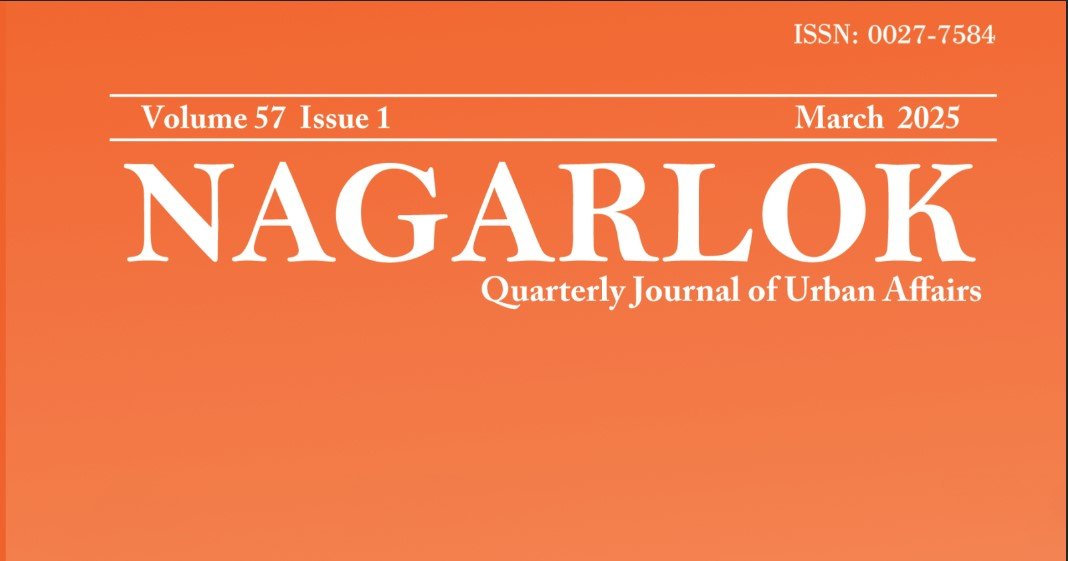
19-Jan-2026
Migration of people from villages to cities is a common phenomenon. Over a period of time, this migration led to rapid growth of urban population. In ...
Gouri P. Vasantha
Source: Journals

19-Jan-2026
India’s developmental trajectory is a paradox, marked by a growing economic prosperity on one hand and glaring inequality, on the other. The predomi...
Pattanayak Pingakschya, Dhal Sangita
Source: Journals

19-Jan-2026
This paper identifies the primary barriers to smart city development in Shimla, Himachal Pradesh, by analysing expert perceptions and citizen satisfac...
Sambher Naina, Sharma D.D.
Source: Journals

19-Jan-2026
This study examines the development of Urban Green Spaces (UGSs) in West Bengal, focusing on the impact of the Atal Mission for Rejuvenation and Urban...
Karmakar Joy
Source: Journals

19-Jan-2026
Master Plan implementation is fraught with varied challenges, particularly in translating policies into actionable projects. Although the literature o...
Chaudhary Ashu, Prakash Poonam
Source: Journals

19-Jan-2026
Urban regeneration in emerging economies represents a pivotal response to escalating urban challenges such as rapid population growth, socio-spatial i...
Alpana, Gupta Ila, Kumari Madhuri
Source: Journals

19-Jan-2026
Policy initiatives are regarded as crucial tools for steering growth and development in urban areas. These initiatives shape growth strategies and fac...
Bhatnagar Anurita, Ahuja Vanita, Kumar Amit
Source: Journals
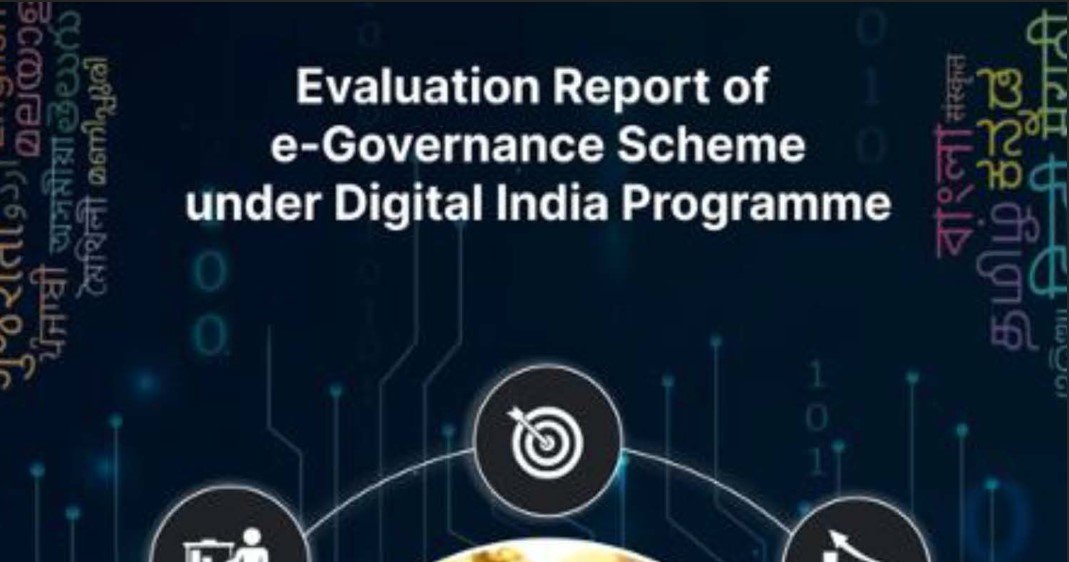
07-Jan-2026
India’s vision to create a digitally empowered society and knowledge economy has been driven by the Digital India programme, spearheaded by the Mini...
Malhotra Charru
Source: Reports
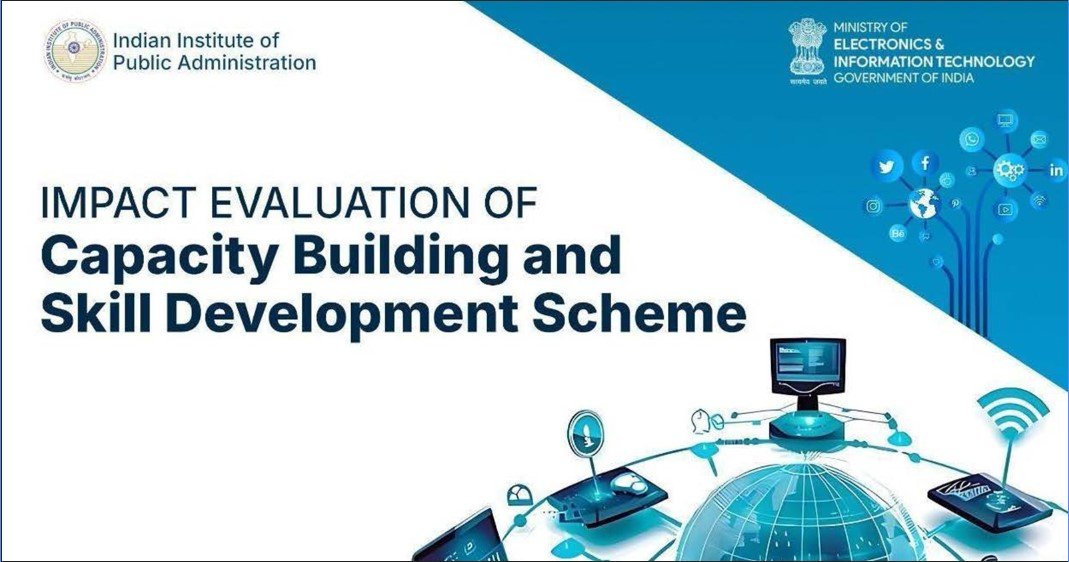
07-Jan-2026
India’s ambition to emerge as a global leader in technology and innovation is a strategic national endeavour, articulated through the overarching go...
Malhotra Charru
Source: Reports
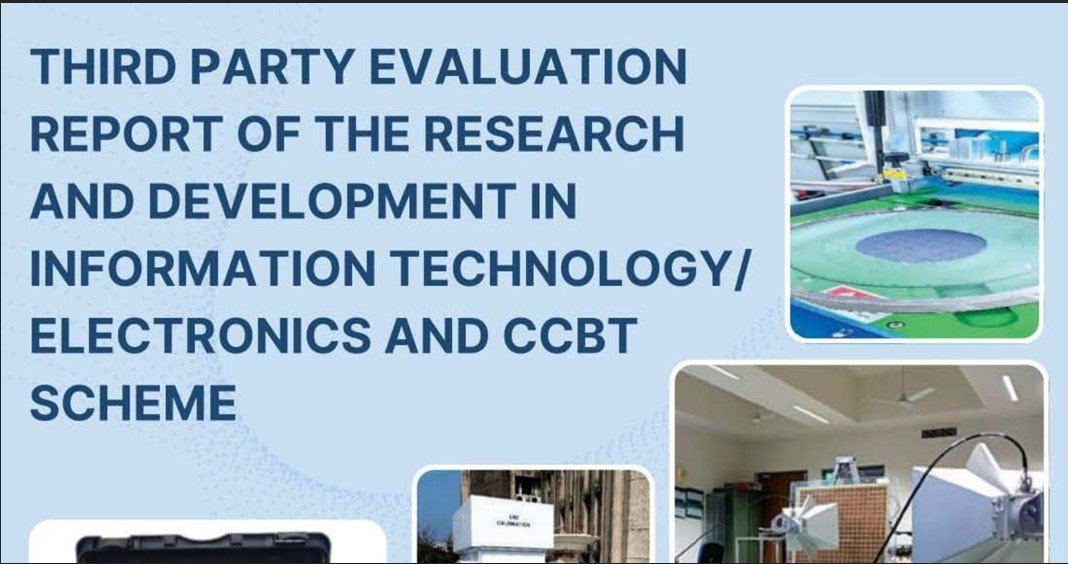
07-Jan-2026
About the Scheme: India’s aspiration to achieve technological sovereignty has been steadily reinforced through strategic initiatives in research and...
Malhotra Charru
Source: Reports
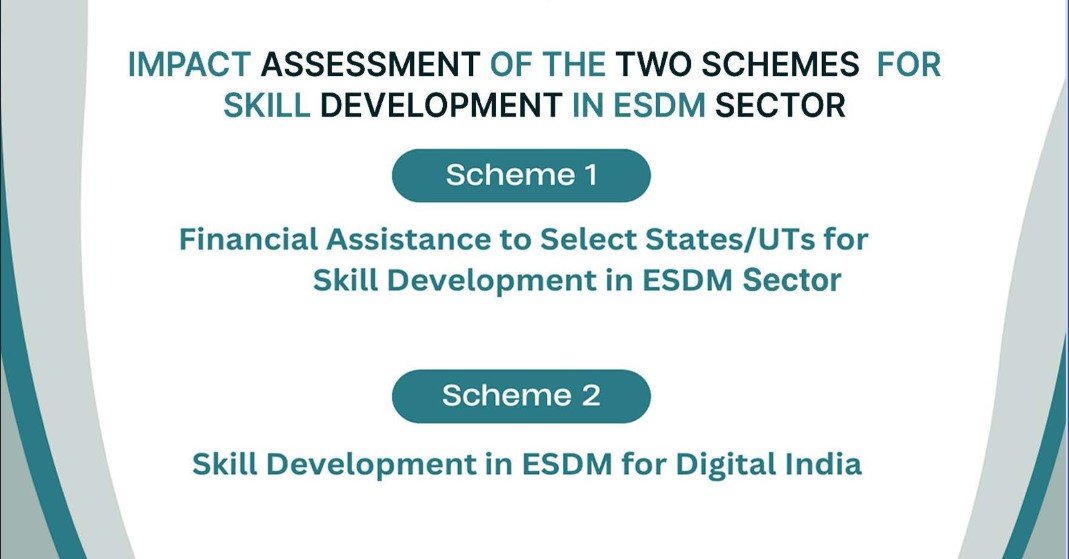
07-Jan-2026
India’s ambition to emerge as a global leader in electronics manufacturing was conceived in 2012 with the introduction of its National Policy on Ele...
Malhotra Charru
Source: Reports

07-Jan-2026
This chapter explores various initiatives currently undertaken by the Government of India to promote and achieve a people-focused governance model....
Jain Neetu
Source: Books

07-Jan-2026
Natural resource management is crucial to sustaining ecosystems and supporting communities as they rely on these resources for their livelihoods. ...
Singh Shyamli
Source: Books
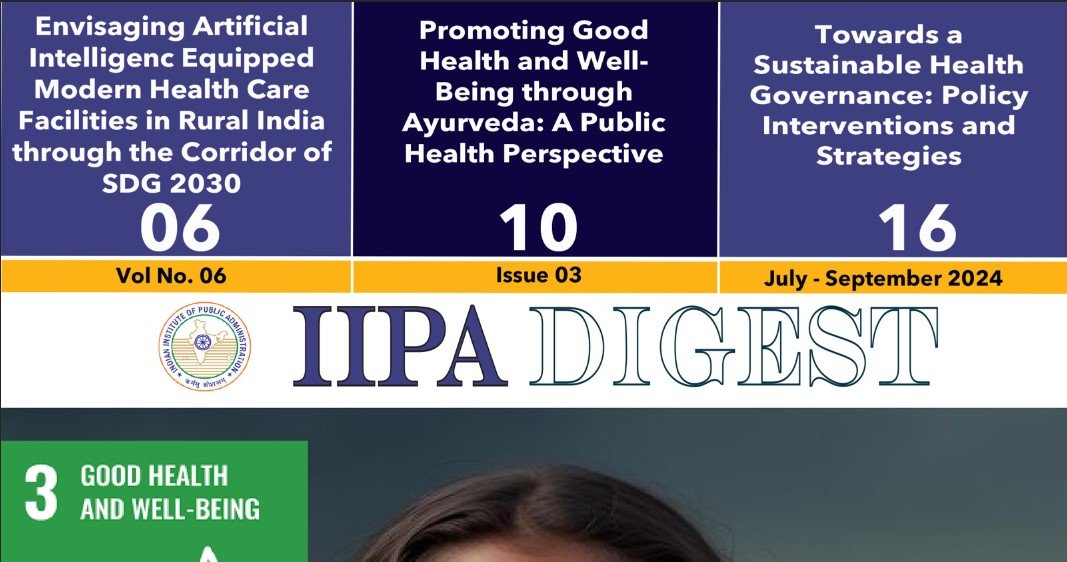
05-Jan-2026
Prof. Bibek Debroy in his surreptitious self-obituary, written before his passing away evokes the memories, ideas, understandings, loss and longings a...
Upadhyay Ranvijay
Source: Magazines

05-Jan-2026
In a world full of challenges and sometimes confusion, the use of technology and communication plays a major role, especially in public policies....
Ravichander Annapoorna
Source: Magazines

05-Jan-2026
As the name suggests, South China Sea (SCS) is located south of Chinese mainland. It is a huge water body with an area of 3.5 million km². ...
Singh Anita
Source: Magazines

05-Jan-2026
In today's fast-paced world, effective communication between regulatory authorties and the public is crucial, especially in the aviation sector, where...
Abid Mohammad Iqbal
Source: Magazines

05-Jan-2026
The Economics of Ecosystems and Biodiversity (TEEB) is a comprehensive global initiative focused on illuminating the critical value of nature and ensu...
Patel Aditya, Tiwary Manish Kumar
Source: Magazines

05-Jan-2026
Oceans are important in climate control and disaster staging, butthey are hard to watch because of their vastness. Submarine telecommunication c...
Charan Gorantla Sai, Sadawarti Suyog Suresh, Shivaji Bansode Siddharth
Source: Magazines

05-Jan-2026
Good news is that IMD has predicted 105% of the Long Period Ave rage (LPA rainfall in this monsoon and the monsoon has come 2 weeks early. ...
Kumar G Asok
Source: Magazines

05-Jan-2026
Healthcare is one of the most important factors that directly impac the quality of life and human development status of any economy. ...
Gupta Namita, Kaur Jaswinder
Source: Magazines

05-Jan-2026
The Government of Karnataka (GoK) is reported to be actively considering reorganisation of Bengaluru’s local governance framework by replacing the p...
Nargund Santosh
Source: Magazines

05-Jan-2026
The Sustainable Development Goals (SDGs), established by the United Nations in 2015, provide a comprehensive framework for addressing global challenge...
Saleem Salman
Source: Magazines

05-Jan-2026
Health remains one of the fundamental pivots of human development alongside education. Health is a force multiplier in the sense that it leads to the ...
Pattanayak Pingakschya
Source: Magazines

05-Jan-2026
On September 1, 2023, a committee headed by former President Ram Nath Kovind explored the possibility of something called One Nation, One Election in ...
Choudhary Anika
Source: Magazines

05-Jan-2026
Sustainable Development Goals (SDGs) epitomize global aspirations, encompassing a broad spectrum of targets aimed at fostering a prosperous, inclusive...
Shanker Amiya
Source: Magazines

05-Jan-2026
State capability and effective governance have been the focus of a few recent books (Somanathan; Muralidharan). ...
Sinha Amarjeet
Source: Magazines

05-Jan-2026
According to Clough (2013), Tomlinson (1986), “Mangrove forests are trees, shrubs and ferns that occupy the inter-tidal areas between land and sea o...
Mitra Rangeet
Source: Magazines

31-Dec-2025
Stay informed about the latest updates, activities, branch events, and upcoming programmes of the Institute through the IIPA Newsletter....
Tripathi Surendra Nath
Source: Newsletter

31-Dec-2025
Stay informed about the latest updates, activities, branch events, and upcoming programmes of the Institute through the IIPA Newsletter....
Tripathi Surendra Nath
Source: Newsletter

31-Dec-2025
Stay informed about the latest updates, activities, branch events, and upcoming programmes of the Institute through the IIPA Newsletter....
Tripathi Surendra Nath
Source: Newsletter

31-Dec-2025
Stay informed about the latest updates, activities, branch events, and upcoming programmes of the Institute through the IIPA Newsletter....
Tripathi Surendra Nath
Source: Newsletter

31-Dec-2025
Stay informed about the latest updates, activities, branch events, and upcoming programmes of the Institute through the IIPA Newsletter....
Tripathi Surendra Nath
Source: Newsletter

31-Dec-2025
Stay informed about the latest updates, activities, branch events, and upcoming programmes of the Institute through the IIPA Newsletter....
Tripathi Surendra Nath
Source: Newsletter
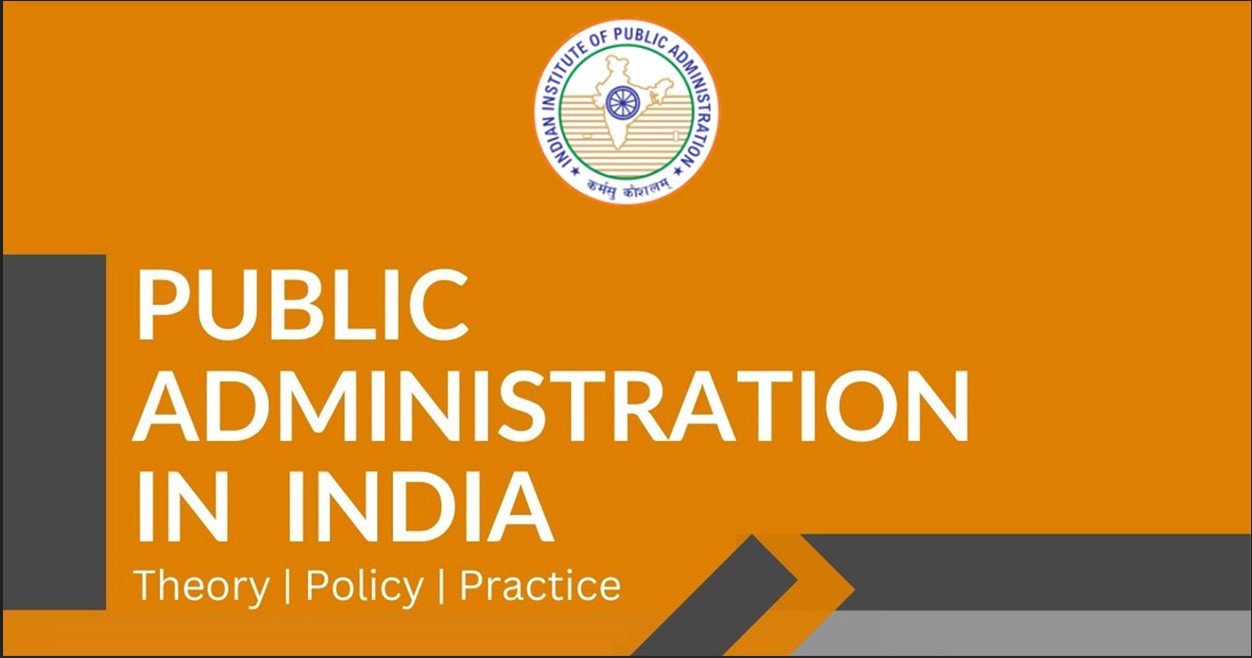
31-Dec-2025
In an era where administrative agility defines the efficacy of democratic governance, this chapter, “Techniques of Administrative Improvement,” of...
Ranjan Manish
Source: Books

31-Dec-2025
This chapter presents an overview of specific significant issues in public administration: Values in Public Service, Regulatory Commissions in India, ...
Reddy C. Sheela
Source: Books

31-Dec-2025
This document covers a brief and pointed framework of the detailed process of urban local/municipal governance in India, with special reference to the...
Pandey Kamla Kant
Source: Books

31-Dec-2025
Administrative reforms are a continuous process to improve the functioning of administrative institutions. The reforms play an important role in strea...
Misra Suresh
Source: Books

31-Dec-2025
The cornerstone of modern democratic governance is financial management, which determines not only the allocative priorities of the state but also the...
Ranjan Manish
Source: Books

31-Dec-2025
The rapid pace and interdependence of global, political, social, and economic developments have necessitated a critical need for improved efficiency, ...
Pathania Mamta
Source: Books

31-Dec-2025
In India, district administration represents the critical link between state-level policy formulation and grassroots implementation. This chapter exam...
Siwach Rajkumar
Source: Books

31-Dec-2025
The structure, functions, and challenges of state government and administration in India are crucial for comprehending the operational dynamics of the...
Rathore Siddharth
Source: Books

31-Dec-2025
India has evolved from a centralised, control-oriented planning model to a decentralised, collaborative, and data-driven policy-making framework, pavi...
Yadav Sushma
Source: Books

31-Dec-2025
The Union Government of India is the central authority responsible for national governance, structured into three main organs: the executive, Parliame...
Wasnik Jitendra G.
Source: Books

31-Dec-2025
The public sector, also known as the State Sector or Government Sector, was conceived as an economic development instrument for ensuring law and order...
Dhameja Nand
Source: Books

30-Dec-2025
District administration in India operates in an increasingly complex environment that demands data-driven and coordinated decision-making. This study ...
Rajat Goyal
Source: Journals

30-Dec-2025
Indian Journal of Public Administration is a peer reviewed professional journal which provides an integrated view of public administration/management,...
Sachin Chowdhry
Source: Journals

30-Dec-2025
The public sector, also known as the State Sector or Government Sector, was conceived as an economic development instrument for ensuring law and order...
Dhameja Nand
Source: Books

30-Dec-2025
The evolution of the Indian administration reflects a historical continuum shaped by civilizational values and transformative changes. Each phase of t...
Kundu Rajesh Kumar
Source: Books

30-Dec-2025
The Ministry of Finance plays a vital role in shaping both monetary and fiscal policies in India. This Chapter is aimed at providing an overview of th...
Alok VN
Source: Books

23-Dec-2025
In a fast-paced world, administrative improvement is a strategic necessity. O&M, work study, and management aid tools, such as network analysis, form ...
Vishandass Ashok
Source: Books
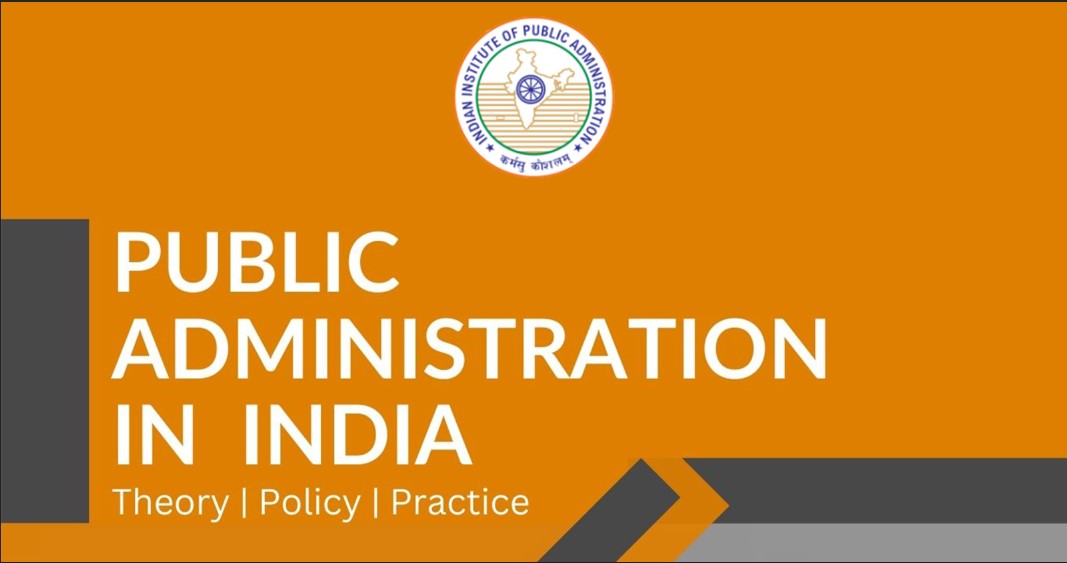
25-Nov-2025
Public policy is a complex process that consists of a series of decisions that are made by stakeholders and the public. The objective of this Chapter ...
Chowdhry Sachin
Source: Books

25-Nov-2025
In the volatile, uncertain, complex, and ambiguous (VUCA) world, public servants’ expectations are growing daily, ranging from e-governance and citi...
Jain Neetu
Source: Books

25-Nov-2025
India is at a crucial juncture in its quest for inclusive development, which will bring prosperity across the entire spectrum. Large amounts of public...
Tiwary Nupur
Source: Books

25-Nov-2025
Comparative Public Administration focuses on comparing administrative structures, procedures, policy-making organs, the role of bureaucracy in differe...
Sharma Meenu
Source: Books

25-Nov-2025
The administrative process has become a necessary evil in all progressive societies, especially in welfare states where the government prepares and ov...
Chadah Sapna
Source: Books

25-Nov-2025
The foundational principles of democratic governance are accountability and control, which ensure that public administration remains transparent, resp...
Wasnik Jitendra G.
Source: Books

25-Nov-2025
An organisation is a group of two or more people working to achieve a common objective. The objectives of the organisation can be achieved through dif...
Sharma Meenu
Source: Books

25-Nov-2025
Administrative Behaviour is a fundamental area of public administration that focuses on comprehending how people behave in groups and within organisat...
Inampudi Sandeep
Source: Books

25-Nov-2025
The dynamic interaction between the recognition of human complexity in organizations and the pursuit of structural efficiency has shaped the evolution...
Inampudi Sandeep
Source: Books

25-Nov-2025
The cornerstone of modern governance is public administration. It refers to the organisation, management, and implementation of government policies an...
Pathania Mamta
Source: Books

14-Nov-2025
A need for development is the defining order of the day where in the monograph brings to the fore the various and myriad facets of Public Administrati...
Dwivedi Manan
Source: Policy Papers
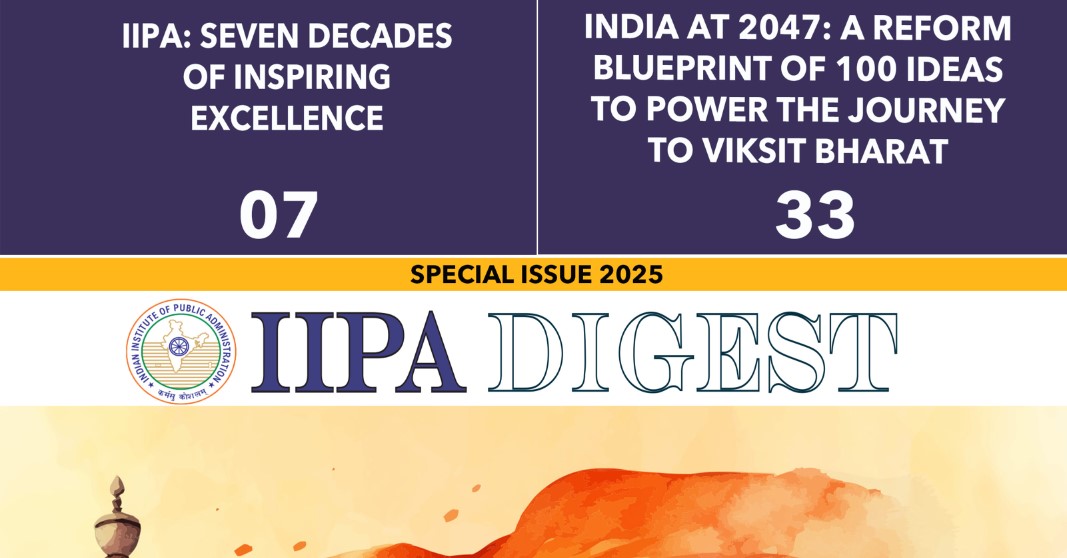
13-Nov-2025
India at 100 will not be judged by the elegance of its rules but by the ease with which a citizen can live, work, and dream. ...
R Balasubramanyam
Source: Magazines

13-Nov-2025
Artificial Intelligence (AI) is advancing with great speed, scope and scale in the domain of governance....
Gireesan K, Chathukulam Jos
Source: Magazines

13-Nov-2025
India’s digital push through PFMS, DBT and GeM has boosted transparency, cut leakages, saved over Rs 4 trillion, and freed funds for growth, innovat...
Srivastava Vinay K
Source: Magazines

13-Nov-2025
This ancient prayer from our Upanishads embodies not just a spiritual aspiration, but a technological imperative for our AI-driven future. India’s s...
Singh Abhishek
Source: Magazines

13-Nov-2025
India’s vision of Viksit Bharat 2047,becoming a fully developed, inclusive, and globally respected nation by the centenary of independence rests on ...
Malhotra Charru, Brig Soni Manmeet Singh, Brig Tewatia Amit
Source: Magazines

13-Nov-2025
As India moves toward its centennial year of independence, the ambition of Viksit Bharat @ 2047 demands a reorientation of development priorities. Gro...
Chowdhry Sachin, Brig Singh Ravi, DIG Sinha Raj Kamal
Source: Magazines

13-Nov-2025
The Vision of Vikshit Bharat 2047 has ignited a billion plus dreams. The foundational assumption of consistent economic growth, would largely hinge on...
Lata Kusum, Brig Shinde Saurabh Arvind, Singh Monica, DIG Singh Kumar Chandan
Source: Magazines

13-Nov-2025
As India approaches its centenary of independence in 2047, the vision of a Viksit Bharat a fully developed, inclusive and prosperous nation is a natio...
Sharma V.K., Poonia Brig Vijay Kumar, Samuel Brig Santhosh
Source: Magazines

13-Nov-2025
Our aspiration of Viksit Bharat by 2047 is intertwined with the goal of having a healthy and productive population. Even as current challenges to heal...
Taneja Pawan K., Mukherjee Capt Abhinandan S, Mutreja Brig Ashish
Source: Magazines

13-Nov-2025
India's education system is at the crossroads. The National Education Policy (NEP) 2020 is a landmark initiative aimed at transforming India's educati...
Bihari Saket, Malhotra Brig.Samresh, M Rahees
Source: Magazines

13-Nov-2025
Agriculture accounts for approximately 15 % of our GDP. In the agricultur sector Viksit Bharat @ 2047 goal aims to achieve food security, enhance clim...
Vishandass Ashok, Karki Brig Gaurav Singh, Khurana Brig Amit
Source: Magazines

13-Nov-2025
Viksit Bharat 2047 agenda is a comprehensive vision plan by the Government of India to transform India to a developed nation by 2047: the 100th Annive...
Pandey Kamla Kant, Jain Brig Rahul, K Brig Arjun
Source: Magazines

13-Nov-2025
India’s vision to emerge as a $30 trillion economy by 2047 presents one of themost ambitious economic development agendas in modern history....
Alok V.N, Challapalli Capt Divakar Shankar, Dhara Capt Abhijit
Source: Magazines

13-Nov-2025
As India approaches its centenary of independence in 2047, in just over two decades, the country could well be among the world’s top three economies...
Misra Suresh, Anand Brigadier K, Bakade Ganesh A
Source: Magazines

13-Nov-2025
India is at a pivotal moment in its history as it approaches the centenary of its independence in 2047. Viksit Bharat, or a fully developed India, is ...
Pandey Surabhi
Source: Magazines

13-Nov-2025
The Advanced Professional Programme in Public Administration (APPPA) is a flagship Executive training programme of Indian Institute of Public Administ...
Jain Neetu
Source: Magazines

12-Nov-2025
Founded in 1954, Indian Institute of Public Administration (IIPA), a government think tank, has been instrumental in shaping discourse on public admin...
Debnath Roma M
Source: Magazines

12-Nov-2025
Since its establishment in 1954, the Indian Institute of Public Administration (IIPA) has served as a vital forum for shaping India’s administrative...
Mohapatra Gadadhara
Source: Magazines

12-Nov-2025
Training and development are necessary to improve employies skills and knowledge, boost productivity and efficiency and enhance job satisfaction. ...
Pathania Mamta
Source: Magazines

12-Nov-2025
It was the year 1951-1952 when the first Lok Sabha elections were held in India.The situation at that time, in post-independent nascent Republic of In...
Ranjan Amitabh
Source: Magazines

11-Nov-2025
As India approaches its 2047 centennial of independence, the idea of "Viksit Bharat" (Developed India) is gaining prominence in national discussions. ...
Sanyukta, Aggarwal Shilpee, Chaudhary Bharti
Source: Books

11-Nov-2025
Education is a key driver of national development, enabling individual empowerment and societal transformation. Despite progress toward universal educ...
Verma Sahil, Sinha Rohit, Goel Manisha
Source: Books

11-Nov-2025
When citizens actively express their views and participate in governance, it drives national progress by aligning government actions with public needs...
Kumar Rakesh
Source: Books

11-Nov-2025
The Freedom Struggle in India witnessed the largest community-led mass movement in modern India, which resulted in emancipation from the British Raj. ...
Pachauri S.K.
Source: Books

11-Nov-2025
This article presents a case study on the development of railroads in India during British rule (1845–1924), focusing on the unique relationship bet...
Gupta Pradeep
Source: Books

11-Nov-2025
E-transportation is emerging as a game changer in the travel and tourism industry, offering sustainable mobility solutions that reduce carbon emission...
Maurya Manisha, Mishra Vaibhav, Misra Shikha
Source: Books

11-Nov-2025
India has the mammoth task of achieving food security with a projected 1.7 billion in 2047. The current paper addresses the role of sustainable agricu...
Raza Asmi
Source: Books

11-Nov-2025
It is well well-known fact that Fat self-ignites at 760 Degree celsius. Using this fact, a group of environmentalists has tried an experiment of build...
Gulati Sunil K., Jaimal Ramji
Source: Books

11-Nov-2025
The River Saryu revered as sacred in Hindu mythology and deeply associated with the spiritual and cultural heritage of Ayodhya, faces growing environm...
Singh Shyamli, Sharma Kanishka
Source: Books

11-Nov-2025
Ecological issues give birth to environmental discourses on human-nature interaction worldwide, which ultimately reinforce the need for environmental ...
Sisodia Saumya, Rai Shivani
Source: Books

11-Nov-2025
The objective of the study is to analyse the socio-economic impact of the two sewage treatment plants using Cost-Benefit Analysis to compare the costs...
Sharma Pooja
Source: Books

11-Nov-2025
The study examines today's worldwide issues and explains why we must build systems that both survive and endure perpetually. Our proposal establishes ...
Bhattacharya Sumanta
Source: Books

11-Nov-2025
In India, digital transformation has become a key component of economic and social advancement, which was launched in 2015, profoundly changing how in...
Pandey Surabhi, Raghib Syed Mohammad
Source: Books

11-Nov-2025
The purpose of this study is to assess the Pradhan Mantri Jan Dhan Yojna (PMJDY) program implemented in India for inclusive growth for the people, for...
Raj Ankita, Singh Kanhaiya
Source: Books

11-Nov-2025
The article delves into the complexities of insider trading, particularly in the context of circumstantial evidence and evolving technological challen...
Dutta Biswadeep, Miglan Deepak, Sherawat Anjali
Source: Books

11-Nov-2025
General Purpose Technologies (GPTs), such as Artificial Intelligence (AI), Blockchain, Cloud Computing, and the Internet of Things (IoT), are transfor...
Chhabra Naresh
Source: Books

11-Nov-2025
The integration of Artificial Intelligence (AI) in the District Judiciary has the potential to revolutionize the legal system by increasing efficiency...
Ramesh Arulmozhiselvi
Source: Books

11-Nov-2025
This study critically examines the Jhar-Jal Portal, an ambitious state-led digital governance initiative deployed in Jharkhand, India, as an empirical...
Ranjan Manish
Source: Books

11-Nov-2025
Evidence-Based Decision-Making for Viksit Bharat: Conceptualizing a District-Level Data-Exchange DPI
Spurred by the national vision of Viksit Bharat @2047, the present study attempts to achieve the goal of presenting a pathway for evidence-based decis...
Malhotra Charru, Manoharan Aroon P
Source: Books

11-Nov-2025
Economic empowerment through the creation of income-generation opportunities and livelihood enhancement activities is essential to bring rural women o...
Singh Avantika
Source: Books

11-Nov-2025
Viksit Bharat seeks to convert India into a developed country by 2047, focusing on economic prosperity, social welfare, and sustainable environmental ...
Narnaware Prashant
Source: Books

11-Nov-2025
The integration of women into the Indian Defence Forces marks a significant stride toward gender inclusivity and operational efficiency. This paper ex...
Dangwal Pranaya
Source: Books

11-Nov-2025
This paper explores the pivotal role of women in Panchayati Raj governance and rural development in Karnataka, a state known for its socio-cultural di...
Natranjan Satish
Source: Books

11-Nov-2025
This study aims to propose systematic, measurable, and actionable frameworks for ensuring ethical decision-making within organizational governance str...
Aggrawal Nitin, Pandey Atul
Source: Books

11-Nov-2025
Corruption poses a considerable impediment to India's progress, hindering its potential for advancement and affluence. This paper highlights the role ...
Jain Neetu, Chadha Himanshi
Source: Books

11-Nov-2025
Visionary Leadership in building Developed India: Need for Paradigm Shift in Approach to Development
After independence in 1947, India adopted the approach of planned development through Five-Year Plans since 1951. First and Second Plans achieved grea...
Jain Sudhir K.
Source: Books

07-Nov-2025
This paper explores the critical role of leadership in achieving inclusive governance as part of India’s vision for Viksit Bharat 2047, a developed ...
Dixit alaram, Dixit Amrapali
Source: Books

07-Nov-2025
This paper examines the evolving role of leadership in Public-Private Partnerships (PPPs), emphasising the need for adaptive and integrative leadershi...
Jacob Biju
Source: Books

04-Nov-2025
This concluding chapter is not merely recount the findings of the study, but it seeks to synthesizing the key themes to articulate a more holistic und...
Mitra Roma
Source: Books

04-Nov-2025
There is a rich body of scholarly and secondary literature on public institutions and markets in ancient India, particularly as documented through reg...
Mitra Roma
Source: Books

04-Nov-2025
The study of ancient India's economic history has often been dominated by two contrasting perspectives. On one hand, there is the image of a largely s...
Mitra Roma
Source: Books

03-Nov-2025
Public institutions in ancient India refer to formal structures and assemblies that governed civic life, regulated societal relationships, enforced la...
Roma Mitra
Source: Books

03-Nov-2025
The ancient Indian society was structured by varna, viz. Brahmins (priests), Kshatriyas (warriors), Vaishyas (merchants), and Shudras (laborers); with...
Mitra Roma
Source: Books

03-Nov-2025
Ancient Indian regional literature describes a wide range of public institutions that combined decentralized participatory governance with centralized...
Roma Mitra
Source: Books

03-Nov-2025
Public policy in ancient India was not only crafted by emperors and royal councils but also shaped by regional practices, local texts, and community-b...
Mitra Roma
Source: Books

03-Nov-2025
The study of public administration in ancient India is a journey through a web of administrative institutions, cultural values, ethical precepts, and ...
Mitra Roma
Source: Books

10-Oct-2025
जीवन की असली सुंदरता उसकी सरलता में है। मेहनत से परिपूर्�...
Laxmi
Source: Others

10-Oct-2025
In today’s digital Eva, social media has become an inseparable part of our daily lives plat forms like face book, instagram, twitter, & what’s...
Gokulasri D.
Source: Others

10-Oct-2025
Artificial intelligence is no longer science fiction; it's reshaping our world, from diagnosing diseases to powering our favorite apps. But this revol...
Ghosh Aditi
Source: Others

10-Oct-2025
The twenty-first century has often been described as the era of artificial intelligence (AI), with technology increasingly shaping the way societies l...
Tiwari Niharika
Source: Others

10-Oct-2025
One April night in 2021, as India gasped for oxygen during the brutal second wave of COVID-19, a desperate tweet from a young man in Delhi reached tho...
Ranjan Manish
Source: Others

10-Oct-2025
Social media in the 21st century has become one of the most transformative phenomena, that reshapes the way individuals communicate,...
Muskan
Source: Others

10-Oct-2025
This sentiment lies at the heart of ease of living. The concept of ease of living has emerged as a vital yardstick to judge whether growth translates ...
Shrivastava Riddhi
Source: Books

10-Oct-2025
The age of Artificial Intelligence (AI) signifies a major shift in human development, where intelligent technologies are transforming governance, the ...
Afzal Syed Ahmed
Source: Others

10-Oct-2025
The measure of a nation’s progress is no longer captured in the rise and fall of its GDP. It is written instead in the rhythms of daily life: whethe...
Ranjan Annita
Source: Others
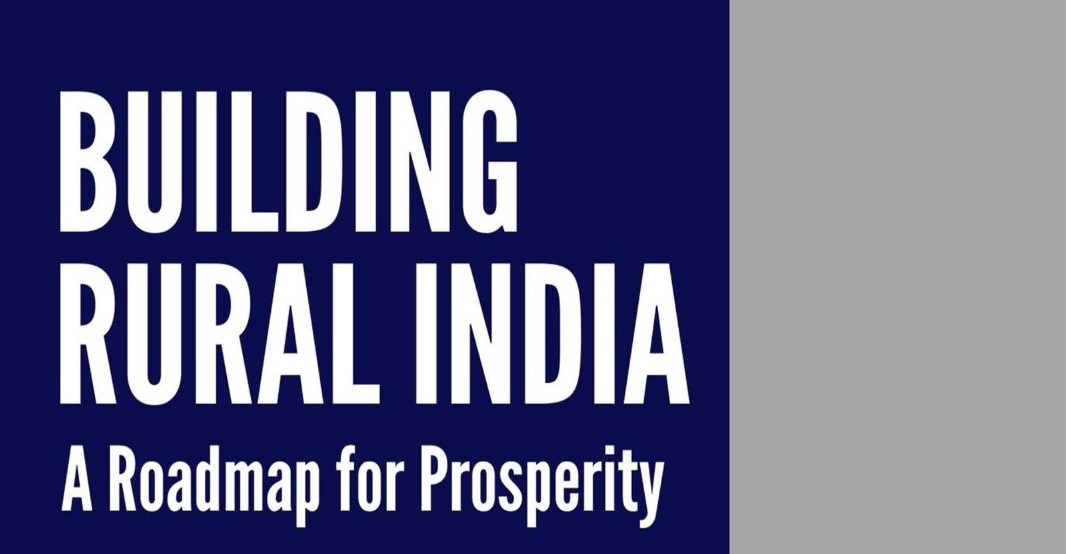
07-Oct-2025
This report traces the journey of Panchayat computerisation in India popularly known as e‑Panchayat from the Round Table Conferences of 2004 through...
Misra Deepak Chandra
Source: Books

07-Oct-2025
The paper provides a detailed insight into the vast MFP (Minor Forest Produce) economy of India, a sector crucial to the livelihoods of about 100 mill...
Source: Books

07-Oct-2025
Panchayati Raj in India is as old as Indian civilisation. Its history goes back to the Vedic times, and according to some, even pre-Vedic times. To un...
Misra Suresh, Singh Amit
Source: Books

06-Oct-2025
This chapter examines the integration of key schemes/programs/approaches such as Deendayal Antyodaya Yojana-National Rural Livelihoods Mission (DAY-NR...
Malhotra Charru
Source: Books

06-Oct-2025
This chapter outlines strategies to bridge the India–Bharat divide through inclusive, innovative financing of rural enterprises. It covers difficult...
Mohapatra Gadadhara
Source: Books

03-Oct-2025
A revolutionary strategy for creating inclusive and fact-based rural policy frameworks is Data for Development (D4D). Policymakers are now better able...
Pandey Surabhi
Source: Books

03-Oct-2025
Skilling is the motherboard of development in the 21st century. The motherboard needs to be calibrated well to improve quantity and quality in jobs. N...
Bihari Saket
Source: Books

29-Sep-2025
Rapid rural transformation is crucial for achieving equitable and sustainable development, particularly in countries like India, where rural areas com...
Pawan Kumar Taneja, Kusum Lata
Source: Books

29-Sep-2025
This chapter analyzes the different aspects of women entrepreneurs in rural India. The chapter covers many key issues, including the sources of fundin...
Jain Neetu
Source: Books

29-Sep-2025
The transformation of rural livelihoods is not just an economic imperative but a socio-political one. A rural economy that provides dignified, diversi...
Vishandass Ashok
Source: Books

29-Sep-2025
Last one decade has witnessed unprecedented coverage of micro enterprises and workers from rural areas under specific schemes and facilitation....
Pandey Kamla Kant, Chowdhry Sachin
Source: Books

26-Sep-2025
This paper traces the typology of historical reforms at grass root level in the state and specific reforms initiated by the State Board of Revenue. Th...
Srinivas V.
Source: Books

26-Sep-2025
Rural India accommodating, sixty five percent of national population living in 6.65 lakh villages among 2.68 lakh Gram Panchayats and rural local bodi...
Tripathi Surendra Nath, Pandey Kamla Kant
Source: Books
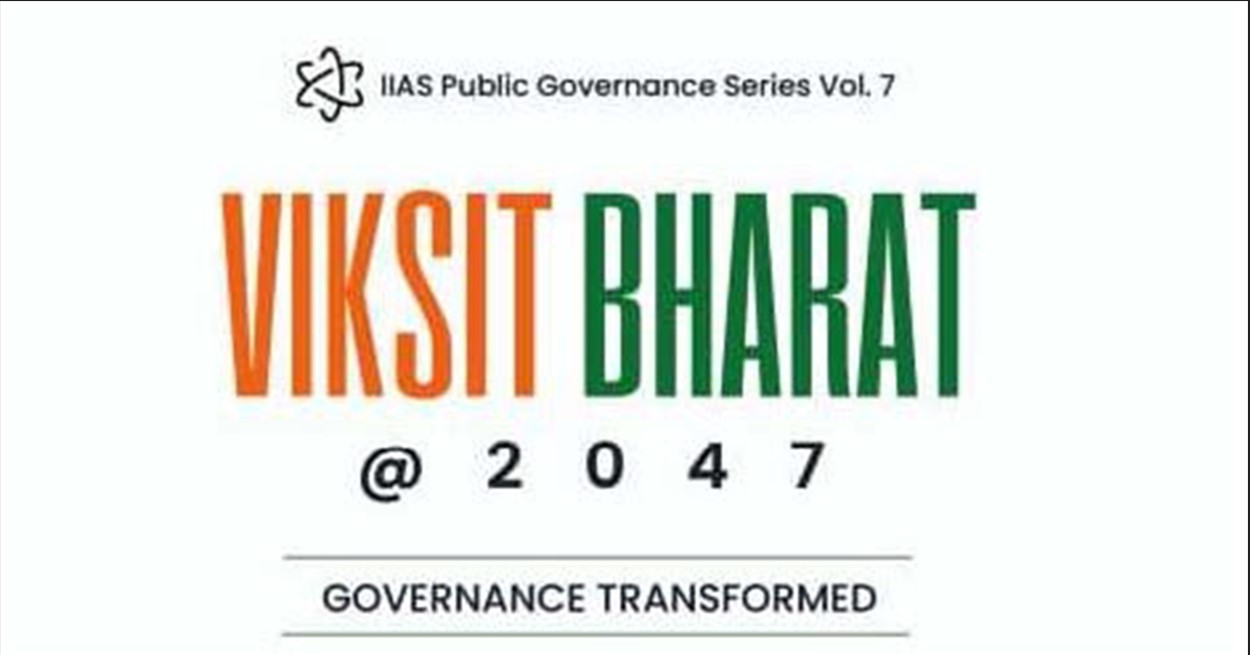
25-Sep-2025
Governance has often been defined as the manner in which the authority, control, and power of an elected government are exercised in mobilising a soci...
C.K. MATHEW, SURENDRA NATH TRIPATHI, C. SHEELA REDDY, A. P. SINGH
Source: Books
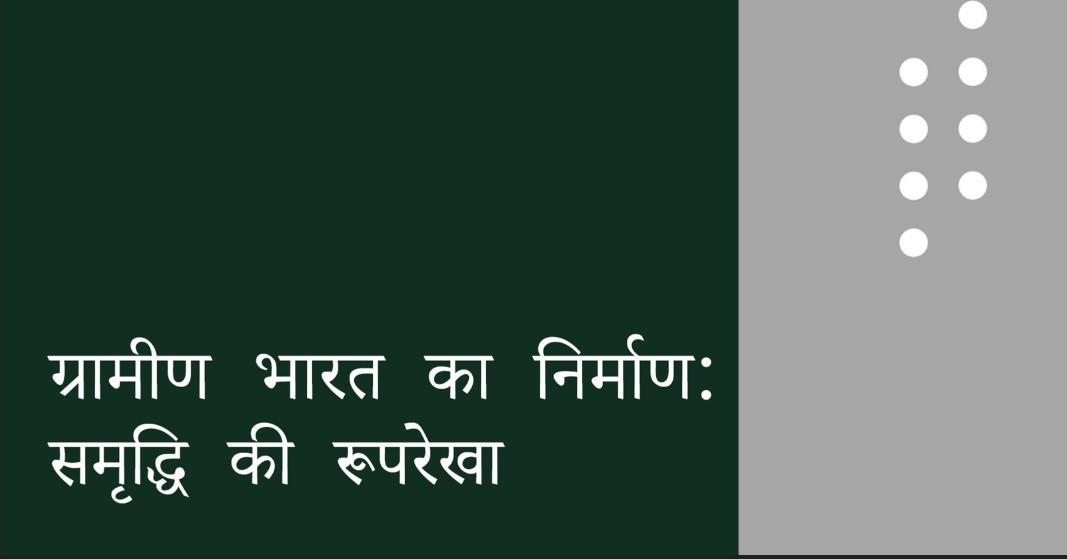
04-Sep-2025
21वीं सदी में कौशल विकास को विकास का मदरबोर्ड माना जाता है�...
बिहारी साकेत
Source: Books

04-Sep-2025
तेज़ ग्रामीण परिवर्तन, न्यायसंगत और सतत विकास प्राप्त कर...
तनेजा पवन कुमार और लता कुसुम
Source: Books

04-Sep-2025
यह अध्याय ग्रामीण भारत में महिला उद्यमियों के विभिन्न पह...
जैन नीतू
Source: Books

04-Sep-2025
ग्रामीण आजीविकाओं का रूपांतरण केवल एक आर्थिक आवश्यकता ह�...
विषंदास अशोक
Source: Books

03-Sep-2025
पिछले एक दशक में ग्रामीण क्षेत्रों की सूक्ष्म उद्यम इकाइ...
पांडेय के.के. और चौधरी सचिन
Source: Books

03-Sep-2025
यह शोधपत्र राज्य स्तर पर जमीनी स्तर के ऐतिहासिक सुधारोंक...
श्रीनिवास वी.
Source: Books
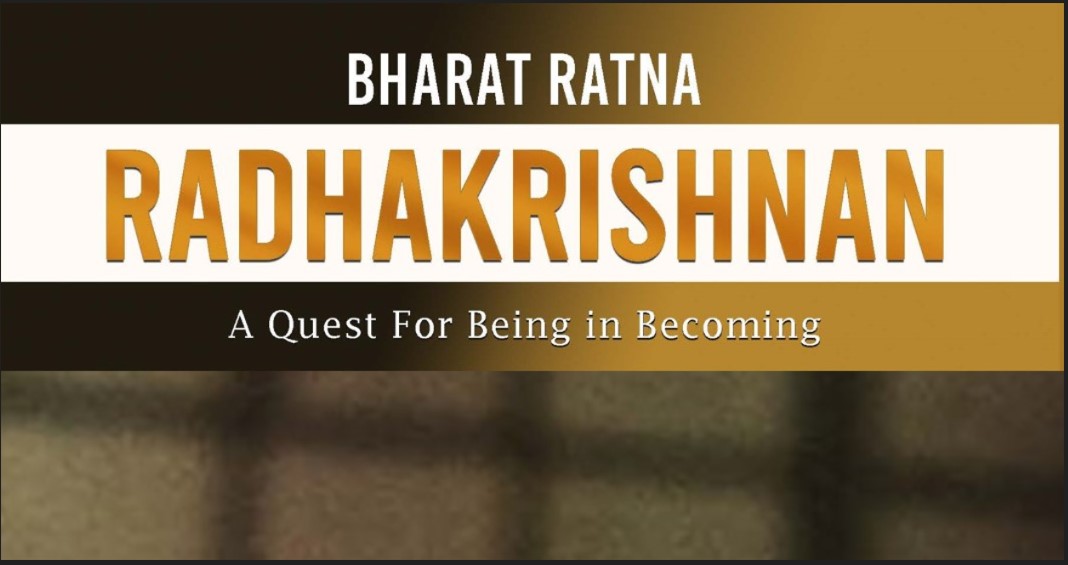
07-Aug-2025
The philosopher, the second President of India and most importantly the great teacher, Dr S Radhakrishnan doesn't need any introduction....
Katoch Nidhi
Source: Books

07-Aug-2025
Many Saints, Rishis, intelligent people, educators, and philosophers were born in our land. These great individuals illuminated the entire world with ...
Priyadarshani Nibedita
Source: Books

07-Aug-2025
Many Saints, Rishis, erudite individuals, educators, and philosophers were born in our wonderful land. These great individuals transmitted the light o...
Mishra KN
Source: Books

07-Aug-2025
The paper seeks to explore the contributions of Shri S Radhakrishnan as a Philosopher and as India's Stalwart Academician. Dr. S. Radhakrishnan was a ...
Anjaria Arnav Keyur, Chugh Priyanka
Source: Books

07-Aug-2025
Dr. S Radhakrishnan was a philosopher par excellence. He advocated for Indian social values, religion and wisdom stock. The ‘teacher-taught’, ‘s...
Kumar Nishant
Source: Books

07-Aug-2025
This paper explores the relevance of Dr. S. Radhakrishnan philosophical teachings. It addresses one of the most pressing issues of our time: climate c...
Kumar Manish
Source: Books

07-Aug-2025
This paper attempts to delineate the ethical foundations of Hinduism as perceived in Dr S. Radhakrishnan’s thought, largely dominated by Veda̅nta p...
Sinha Gunjan Pradhan
Source: Books

07-Aug-2025
Dr. Sarvepalli Radhakrishnan (1888-1975) was a prominent Indian scholar, philosopher, and statesman who influenced academic circles during the 20th ce...
Shukla Sunil, Shethna Vidhy
Source: Books

07-Aug-2025
Like a luminous thread woven through Indian thought, dharma, the path of righteousness, ignites the sacred flame of humanity within. By steadfastly wa...
Reddy Kovuuri G, Prakash Uttam
Source: Books

07-Aug-2025
Dr Sarvepalli Radhakrishnan (1888-1975) was an extraordinary philosopher, educator and statesman whose ideas and work had evolved in the socio-politic...
Atwal Jyoti
Source: Books

07-Aug-2025
Every culture has a vision of a philosopher and a statesman presiding over its destiny. The wisdom of the philosopher will guide the statesman to gove...
Chaturvedi Atulindra Nath
Source: Books

07-Aug-2025
S. Radhakrishnan saw India as a land where the spirit in human beings comes to the fore unbridled by fear or hatred, establishing unity with the entir...
Anand Mamta
Source: Books

07-Aug-2025
Bharat Ratna Dr. Sarvepalli Radhakrishnan was the first Vice-President (1952-62) and second President (1962-67) of India. ...
Tripathi Surendra Nath, Bihari Saket
Source: Books
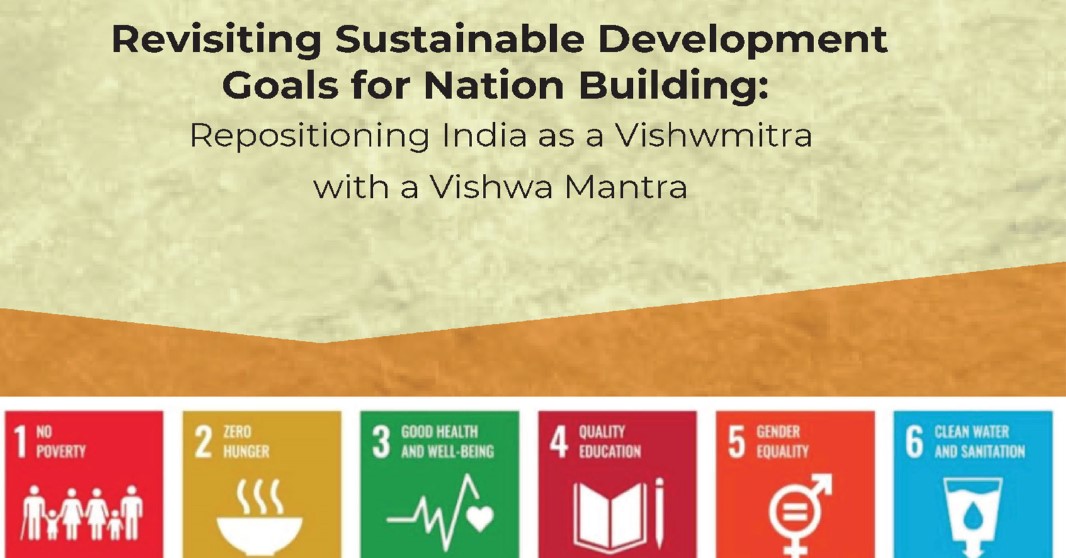
07-Aug-2025
The hallmark of any criminal justice system rests on some key robust principles. Access to justice, being a component of justice is one of them. It en...
Chadah Sapna, Kaushal Isha
Source: Books

07-Aug-2025
The future of tourism lies in those destinations that conserve a clean environment and reflect natural beauty as the majority of foreign tourists appr...
Jain Sudhir K, Modwel Gauri
Source: Books

07-Aug-2025
India has surpassed France and the UK to become the fifth largest economy in the world with a nominal Gross Domestic Product (GDP) estimated to be aro...
Mehrotra Rohit
Source: Books

07-Aug-2025
This study analyses the current contribution of the Public Sector Enterprises (PSEs) in building a competent workforce for the nation while identifyin...
Aggrawal Nitin, Jain Neetu
Source: Books

07-Aug-2025
Technological advancements in the field of Artificial intelligence (AI) are being adopted by society at large since it has the potential to change the...
Chhabra Naresh
Source: Books

07-Aug-2025
This paper offers an integrated digital drone-based services solution for cities & towns, controlled through an integrated smart control room and/...
Huria Bharat
Source: Books

06-Aug-2025
The Public Sector Enterprises (PSEs) have contributed significantly in the growth and development journey of India. Over the past few years, survival ...
Chaudhary Vijay Kumar, Singh Kanhaiya
Source: Books

06-Aug-2025
The Ironman triathlon is considered one of the most demanding endurance races globally, encompassing long-distance swimming, cycling, and running....
Jaychandran CJ
Source: Books

06-Aug-2025
With the emerging global crisis of climate change outbreak of COVID-19, it is imperative that how significant it is to maintain the balance between ec...
Sharma Pooja, Choudhary Nitin Kumar
Source: Books

06-Aug-2025
Health and happiness are valuable assets of human life. Traditional Indian knowledge system particularly Yogic and Ayurvedic texts, elaborately descri...
Yadav Anil Kishor
Source: Books

06-Aug-2025
This paper covers the health benefits of cycling and how it has a positive impact on the environment. It examines the Dutch model of the development o...
Kapoor Puneet
Source: Books

06-Aug-2025
This study starts with an Indian benchmark method of the Vedic era that was used to ensure equality and women's contribution to nation-building. Subse...
Aggrawal Nitin
Source: Books

06-Aug-2025
The transformation of the lives of rural women towards their betterment is a critical issue in the development process of countries around the world. ...
Jain Ambali, Singh Avantika
Source: Books

06-Aug-2025
The concept of inclusion has transcended its status as a social construct and has drawn significant attention from organisational practitioners and sc...
Garg Shalini, Chhikara Renu
Source: Books

06-Aug-2025
This paper delineates the significance of education for the growth and development of human being. Indeed, educational attainment is associated with m...
Jain Neetu, Shauran Bharti
Source: Books

06-Aug-2025
In this VUCA world, changes are taking place at a very high pace. Development of new technologies has created cut throat competition among organizatio...
Kumar Rakesh
Source: Books

06-Aug-2025
Education is the essential part of any development as it is a means of social improvement and material wellbeing, especially for the economically and ...
Nazeer Zubair
Source: Books

05-Aug-2025
The nation's attitude toward development and growth has altered as a result of policy pronouncements that are mixed with decision that are quite refor...
Pathania Mamta
Source: Policy Papers

05-Aug-2025
Governance in India has evolved significantly over the years. Here's a brief overview of governance in India, comparing the past and the present....
Pathania Mamta
Source: Policy Papers

05-Aug-2025
Digital Transformation and E-Government: Through the "Digital India" project, India has made tremendous progress in modernizing government services an...
Pathania Mamta
Source: Policy Papers

05-Aug-2025
In India, the procedure of shifting the paradigm for good governance has been dynamic and continuing. A notion known as "good governance" includes a n...
Pathania Mamta
Source: Policy Papers

05-Aug-2025
India undertook substantial reforms in a number of areas of its economy, society, and government after achieving independence from British domination ...
Pathania Mamta
Source: Policy Papers

05-Aug-2025
Administration of independent India drewn many transformations to get away from British colonial administration that propagates the colonial need such...
Pathania Mamta
Source: Policy Papers

05-Aug-2025
The twenty-first century should be an era of new forms of Governance different from what we have seen in the past. Due to widespread economic problems...
Pathania Mamta
Source: Policy Papers

05-Aug-2025
Good governance implies service to the people. Government’s task is to govern in a way that optimizes the development and welfare of its citizens. M...
Pathania Mamta
Source: Policy Papers

05-Aug-2025
The concept of ‘governance’ is not new. It is as old as human civilization. It has over the years gained momentum and a wider meaning. Apart from ...
Pathania Mamta
Source: Policy Papers
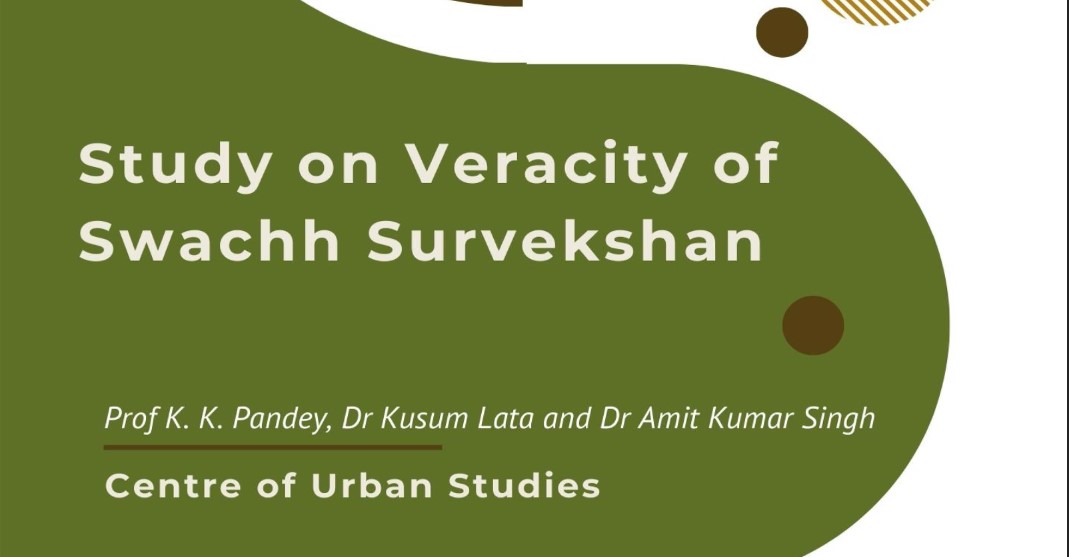
05-Aug-2025
This study is based on an assessment made on Veracity of Swachh Survekshan (SS) on the basis of grassroot and town level information from three select...
Pandey KK, Lata Kusum, Singh Amit Kumar
Source: Reports
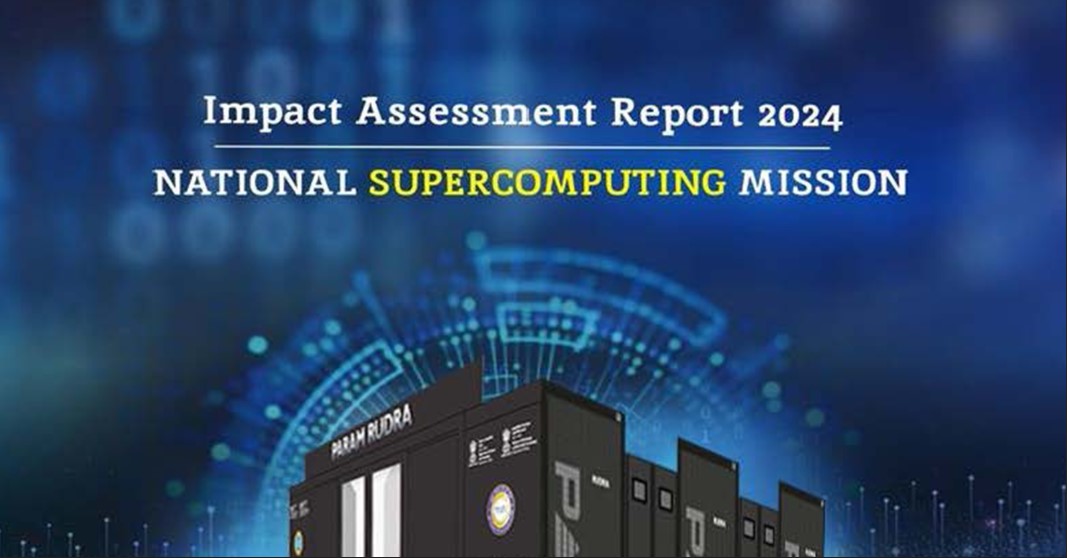
05-Aug-2025
In the contemporary world, where technology keeps getting better, supercomputers play significant role. ...
Malhotra Charru
Source: Reports
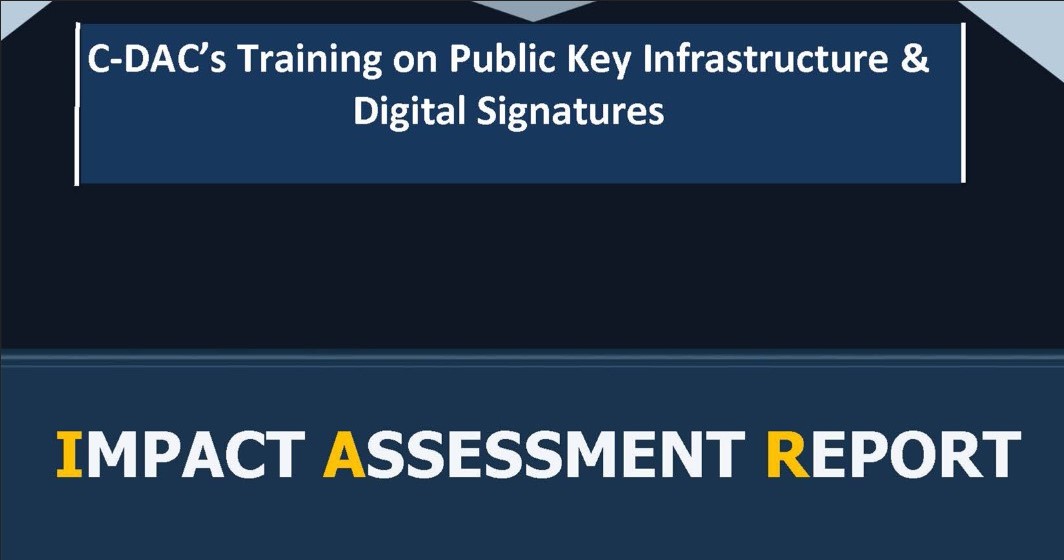
05-Aug-2025
The CDAC’s “Next Generation Public Key Infrastructure for Smart Applications”, project was initiated under the aegis of Controller of Certifying...
Malhotra Charru
Source: Reports
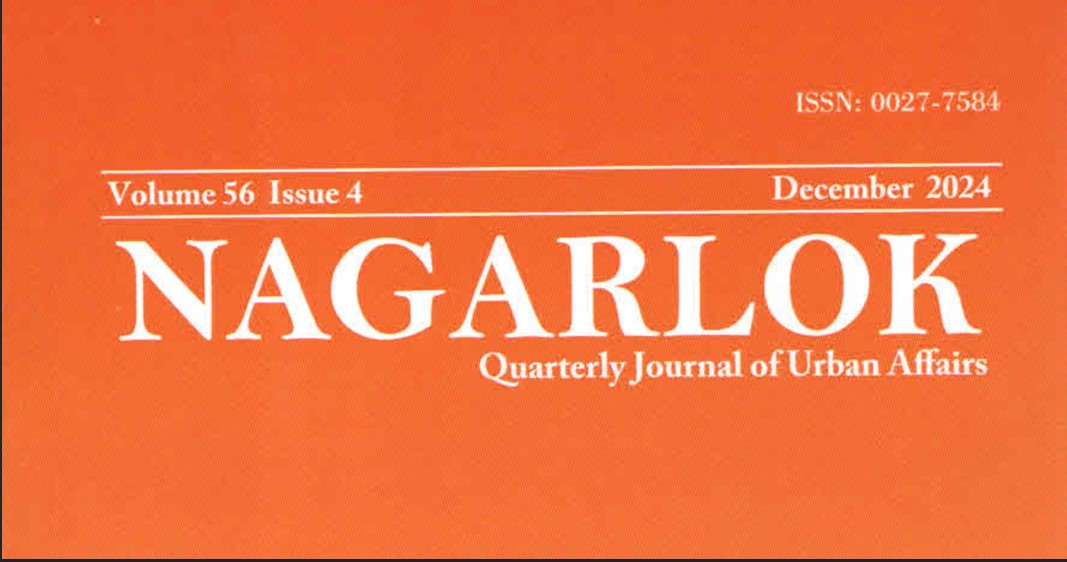
05-Aug-2025
India’s journey towards electric vehicles (EVs) is not just an environmental necessity or an issue but also a strategic move to reduce dependency on...
Rana Priti, Mirza Amna
Source: Journals

04-Aug-2025
Heritage and medieval town planning offer invaluable insights into how communities organised themselves in the past, reflecting social, economic, and ...
Lavand Ar Vaidehi
Source: Journals
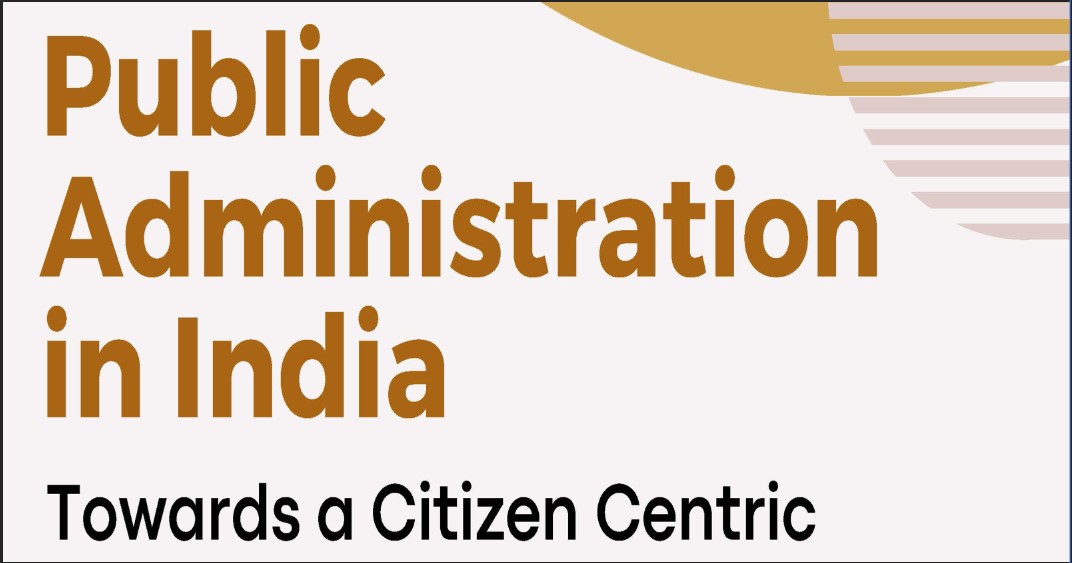
04-Aug-2025
The family stands as the key social institution in the social structures. The planning echelon in both income and spending are defined only in its con...
Dhaka Rajvir, Dhaka Sunita
Source: Books

04-Aug-2025
In India, the paradigm of Participatory Forest Management (PFM) is proving to be transformative as it attempts to balance the intricate relationships ...
Parvathy Devi, R Mary
Source: Books

04-Aug-2025
A long-term abutting weather situation that is particularly related to temperature and precipitation is called climatic change. Land-use changes, fore...
Singh Shyamli, Singh Anugya
Source: Books

04-Aug-2025
The Yamuna is a tributary of the holy Ganges. The main stream of the Yamuna River originates from the Yamunotri Glacier at Bandar Panch (38°59'N, 78�...
Singh Nawal
Source: Books

04-Aug-2025
When the nation moves towards higher standards of development there are several parameters that it needs to take care, not forgetting one of the cruci...
Brahmachari Debahuti
Source: Books

04-Aug-2025
The paper identifies the STREET project as a sustainable model for enabling responsible tourism principles and practices with local self-governance as...
Zenib Nilofer, Sasi Sivajith
Source: Books

04-Aug-2025
The 73rd and 74th constitutional amendments brought an overhaul in public administration by empowering rural and urban local governance. ...
Bhide Prajakta
Source: Books

04-Aug-2025
The study focused on assessing the two frameworks in context of Decentralisation of Health Services in Jhunjhunu District, Rajasthan viz. perceptions ...
Singh Upendra
Source: Books

04-Aug-2025
Governance is an age-old concept and it is all about making decisions and getting things done (UCLG, 2021). It happens at every level like countries, ...
Singh Amit Kumar
Source: Books

04-Aug-2025
India's healthcare system has long been a subject of concern due to its inadequate infrastructure, limited access to quality healthcare, and stark dis...
Goud Poodari Rohith, Ahmad Ansari Mohd Nafees
Source: Books

04-Aug-2025
Right to health is primarily not just a call for consigning legal status of a human aspiration. It has much more to do with the civilisational prefere...
Dhaka Sunita
Source: Books

04-Aug-2025
Gram Sabha represents the fundamental unit of local governance. It acts as the integral component of the Panchayati Raj system, embodying the essence ...
BS Ashalekshmi
Source: Books

04-Aug-2025
The Aspirational District Programme (ADP), launched by Prime Minister Sri Narendra Modi in January 2018, represents a significant policy initiative ai...
Maurya Akhilesh
Source: Books

04-Aug-2025
The concept of governance is not new. It is as old as human civilisation. Civilisation is the characteristic of the people. It is one of the things th...
Alok Ashish
Source: Books

04-Aug-2025
With his utopian yearning for a paganised unified globe devoid of all the limitations and boundaries that afflict our unreal world, Lennon scarcely co...
Gholap Shubhada
Source: Books

04-Aug-2025
Corruption is a complex socio-economic problem which universally affects all societies. The government being a large-scale organisation is also not im...
Aarti, Kohli Avneet Kaur
Source: Books

04-Aug-2025
The issue of governance has received serious attention of researchers, policy makers, administrators and the national as well as international communi...
Kundu Rajesh Kumar
Source: Books

04-Aug-2025
The government provides services including healthcare, education, social support, and financial inclusion to the public. However, villagers and citize...
Malhotra Charru
Source: Books

04-Aug-2025
Digital governance, in the context of the digital era, involves the use of information and Communication Technologies (ICTs) to enhance and transform ...
Mahor Jyotsana
Source: Books

04-Aug-2025
Since the majority of India's population relies on agriculture for their living, the sector dominates the country's economy. Agriculture only ma...
Katekar Vishal, Cheruku Jeevan Kumar
Source: Books

04-Aug-2025
The 21st century has ushered in an era of rapid technological advancement, fundamentally altering how governments interact with their citizens....
Thakkar Maneesh, Kumar Anil
Source: Books

04-Aug-2025
Healthcare is an essential aspect of any society, and in India, it holds a unique place due to its immense population and diverse healthcare needs....
Maheswari M Uma, AS Arvind
Source: Books

04-Aug-2025
E-commerce and digital technology have transformed the way people spend and save. There is an evident technological growth in the world of finance whi...
Kaur Ashmeet
Source: Books

01-Aug-2025
The origin of ‘Social Equity’ in Public Administration can be legitimately traced to 1968 Minnowbrook Conference that brought together young minds...
Sanil Akanksha
Source: Books

01-Aug-2025
Resumption of hostilities meant “hell on Earth has returned to Gaza. The resumption of hostilities is catastrophic.”...
Jha Indramohan
Source: Books

01-Aug-2025
The Reserve Bank of India (RBI), as India's central bank and regulatory authority, plays a pivotal role in shaping public administration and governanc...
Dhingra Harsh
Source: Books

01-Aug-2025
Today we are living in an era of the ‘regulatory state’. The expressions ‘regulation’, ‘regulatory governance’ and ‘regulatory institu...
Chadah Sapna
Source: Books

01-Aug-2025
Governance is defined as structures and processes of decision-making through which performance and accountability is ensured in the organisations....
David Supriya
Source: Books

01-Aug-2025
Participatory planning involves the intensive participation of local communities in analysing their current situation, envisioning a long-term collect...
Kashyap Sham N
Source: Books

01-Aug-2025
Since centuries backward class women were politically, economically, socially and educationally oppressed. They were deprived of their basic rights an...
Katturwar B R
Source: Books

01-Aug-2025
Local governance is the cornerstone of democracy, where communities come together to make decisions that directly affect their daily lives....
Shukla Vivek Kumar
Source: Books

01-Aug-2025
Intrinsically, India is a republican country that is organised as a federation with a parliamentary democracy. Similar to the United Kingdom, the Pres...
Chaudhary Diksha
Source: Books

01-Aug-2025
India is rapidly integrating technology in both governance and in delivering goods and services. All this requires a worker (civil servant) who is not...
Dhanapall RR
Source: Books

01-Aug-2025
The civic engagement is an important hall mark of democracy. Ours has been one of the oldest and richest democratic traditions that have involved peop...
Sharma Abhinav
Source: Books

01-Aug-2025
With over eight thousand years of experience and intellectual growth (Cameron (1968), Edwards (Gadd, 1971), Hammond (1971), Eisenstadt (1963, 1993), O...
Sharma Minal
Source: Books

01-Aug-2025
Good Governance is the key to a Nation’s progress and an important step towards it is the simplification of procedures and processes in the Governme...
Sisodia Saumya, Rai Shivani
Source: Books

01-Aug-2025
The theory of separation of powers constitutes a key tenet of democratic governance....
Sonaje Tejas
Source: Books

01-Aug-2025
In recent years, the widespread practice of offering freebies, ranging from subsidised goods and services to outright giveaways, has become a prominen...
Sharma Daisy
Source: Books

01-Aug-2025
From the study of the principles of origin of the state, it is concluded that the state has originated to make human life easier and this function of ...
Ranawat Jorawar Singh
Source: Books

01-Aug-2025
India, is the world's largest democracy, with a population of 1.48 billion people. Its vast population and the ethnic diversity of its people, languag...
Dalal Rajbir Singh, Monika
Source: Books

01-Aug-2025
A paradigm represents a framework, viewpoint, or collection of concepts that serves as a lens for understanding various subjects. In disciplines like ...
S Ajitha
Source: Books

01-Aug-2025
The field of public administration is experiencing a dramatic and rapid change. Locally and globally, some of the most significant trends that will ha...
Misra Suresh, Mahor Jyotsana
Source: Books

01-Aug-2025
“Today, I would like to make a request to the bureaucracy of India, to every government employee, be it in the State Government or the Central Gover...
Srinivas V
Source: Books

01-Aug-2025
Public administration in the 21st century is undergoing significant transformation, not just in advanced countries but also in various regions of the ...
Misra Suresh, Chadah Sapna, Pathania Mamta
Source: Books

22-Jul-2025
Ludhiana, a key industrial hub in India, boasts diverse and thriving manufacturing sectors. Understanding the spatial organisation of these sectors is...
Rahman Mostafizur, Dua Sandeep
Source: Journals

22-Jul-2025
For decades, about one-third of Delhi’s population has lived in unauthorised colonies, lacking basic services, social infrastructure, and even recog...
Kumar Ashish , Arora Soma, Prakash Anand
Source: Journals

22-Jul-2025
Across the globe, smart cities have emerged as instruments for facilitating innovative and citizen-centric urban transformation with sustainable digit...
Gupta Bhawna, Ahuja Tanya
Source: Journals

22-Jul-2025
Air pollution is a critical global concern, posing substantial health risks and environmental degradation, and public perceptions of its causes can va...
Suleman
Source: Journals

22-Jul-2025
Of all the technological revolutions the world has experienced, the digital revolution stands out as the most transformative, game changing, developme...
Gnaneshwar V
Source: Journals

22-Jul-2025
Cities worldwide confront numerous urban development issues due to rapid changes in urbanisation....
Bhatia Pankhuri
Source: Journals

22-Jul-2025
Higher Education Institutes (HEIs) have always been the role model of innovative ideas and new thinking in the world, but with the environmental chall...
Vanshul, Luthra Ashwani
Source: Journals

22-Jul-2025
The construction industry in India is a vital component of the country’s economic development, serving as the second largest employer and contributi...
Goyal Richa, Rao PSN
Source: Journals

22-Jul-2025
With India’s urban population approaching 40 per cent of the overall population and cities estimated to contribute 75 per cent of national GDP by 20...
Sarda Radhika, Srinivas R. Srinivas
Source: Journals
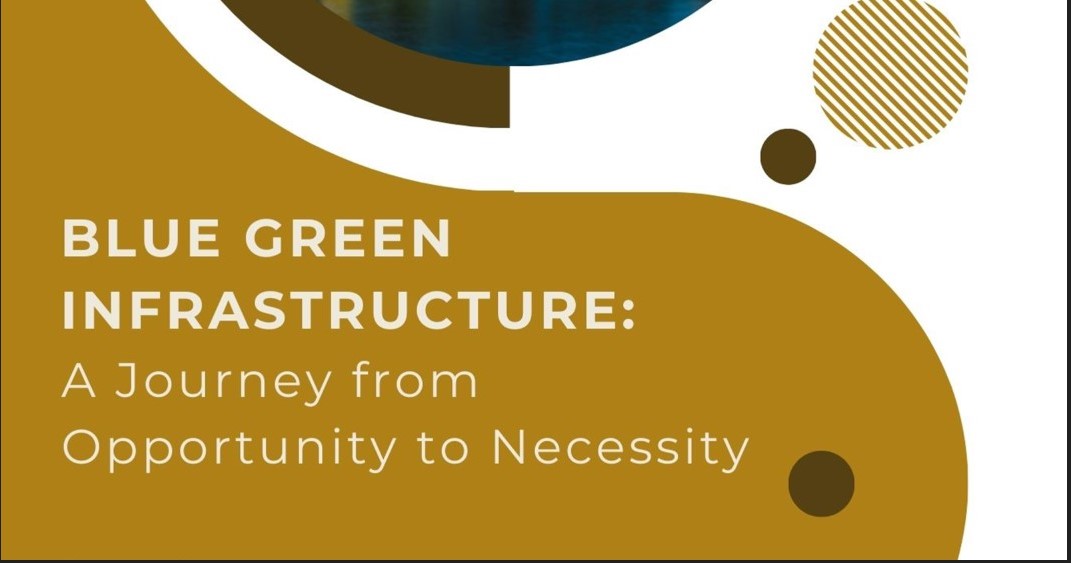
22-Jul-2025
This working paper explores the transformative potential of Blue-Green Infrastructure (BGI) as a crucial strategy for addressing urban environmental c...
Lata Kusum
Source: Reports
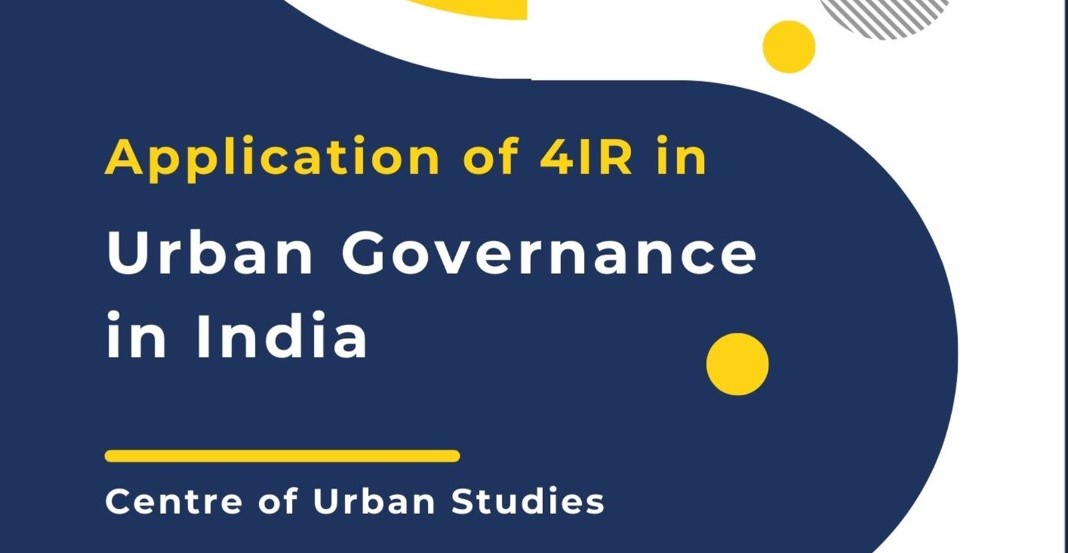
22-Jul-2025
This document scans the applicability and incidence of 4IR (Fourth Industrial Revolution) among cities and towns for citizen centric urban governance ...
Pandey KK
Source: Reports
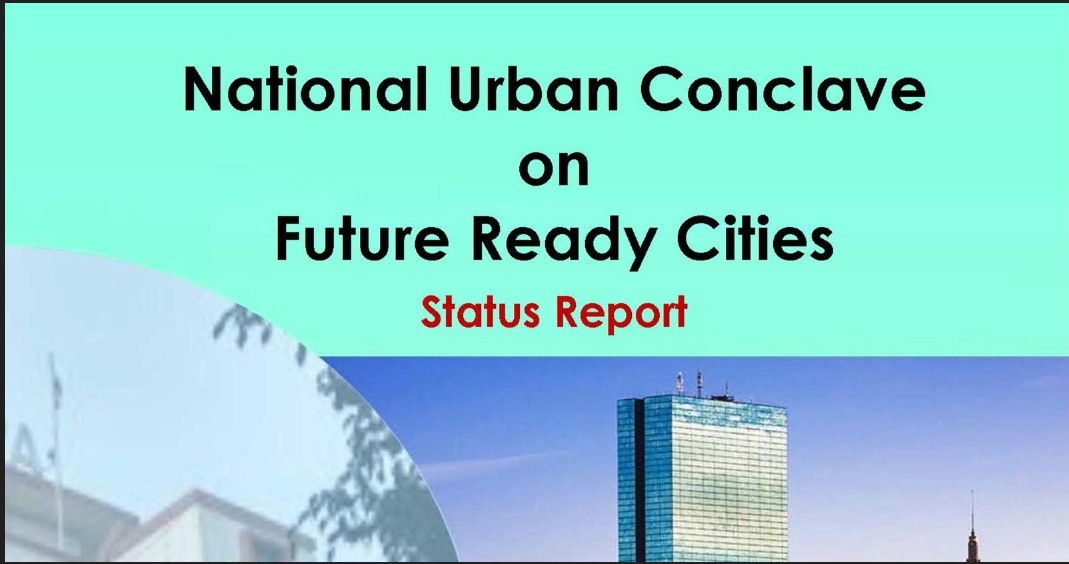
22-Jul-2025
Urban areas, as elsewhere, are emerging as nerve centres of economic growth in India. Urban India, contributing nearly two-thirds of the national inco...
Pandey KK, Singh Amit
Source: Reports
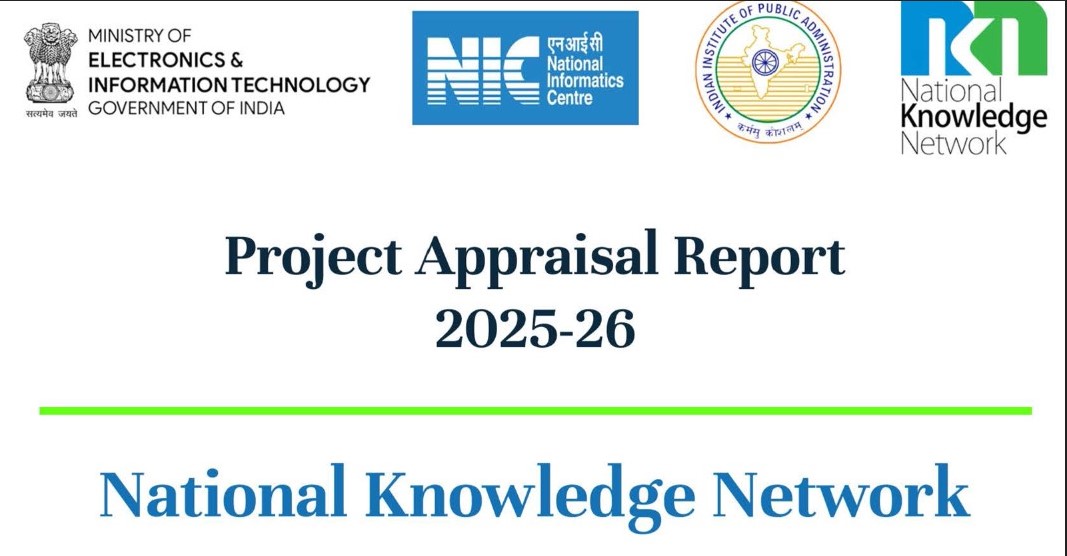
22-Jul-2025
The National Knowledge Network (NKN) is a visionary initiative launched by the Government of India to bolster the country’s digital infrastructure f...
Malhotra Charru
Source: Reports

22-Jul-2025
Artificial Intelligence (AI) is turning governance on its head, helping governments all over the world to make evidence-based decisions, expedite proc...
Tripathi Surendra Nath, Pandey Surabhi & Raghib Syed Mohammad
Source: Books

22-Jul-2025
Artificial Intelligence (AI) has advanced significantly across a number of industries, including healthcare, finance, education, and entertainment....
Tripathi Surendra Nath, Pandey Surabhi & Raghib Syed Mohammad
Source: Books
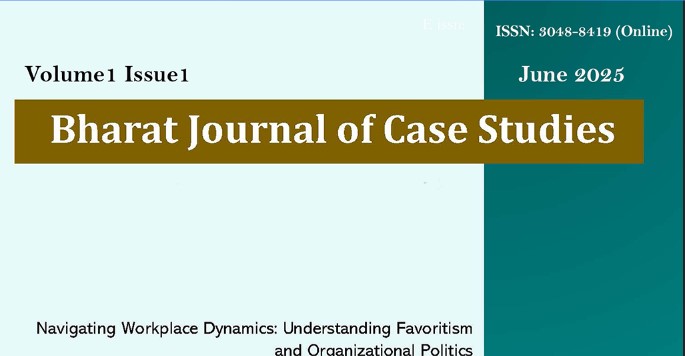
22-Jul-2025
AbstractByju's has played a crucial role in driving innovation and growth in the Indian edtech startup industry. Byju's, a unicorn and global leader, ...
Mishra Tanmaya, Gupta Bindiya, Achhnani Bhumika
Source: Journals

22-Jul-2025
The emergence of Artificial Intelligence (AI) has changed many industries, leading to debates over the appropriate ways to regulate these quickly deve...
Tripathi Surendra Nath, Pandey Surabhi & Raghib Syed Mohammad
Source: Books

22-Jul-2025
Artificial Intelligence (AI) is becoming more and more important in the fields of finance, healthcare, government, and other industries as it continue...
Tripathi Surendra Nath, Pandey Surabhi & Raghib Syed Mohammad
Source: Books

22-Jul-2025
Artificial Intelligence (AI) is revolutionising public administration by increasing the effectiveness, transparency, and responsiveness of service del...
Tripathi Surendra Nath, Pandey Surabhi & Raghib Syed Mohammad
Source: Books

22-Jul-2025
Artificial Intelligence (AI) has enormous potential to improve governance, public service delivery, and decision-making in India's public administrati...
Tripathi Surendra Nath, Pandey Surabhi & Raghib Syed Mohammad
Source: Books

22-Jul-2025
The integration of Artificial Intelligence (AI) into public services, commercial businesses, and government has raised ethical concerns concerning top...
Tripathi Surendra Nath, Pandey Surabhi & Raghib Syed Mohammad
Source: Books

22-Jul-2025
India is leading the way in embracing the way Artificial Intelligence (AI) is changing infrastructure management and urban settings globally....
Tripathi Surendra Nath, Pandey Surabhi & Raghib Syed Mohammad
Source: Books

22-Jul-2025
Automation is the application of technology to carry out operations with the least amount of human interaction....
Tripathi Surendra Nath, Pandey Surabhi & Raghib Syed Mohammad
Source: Books

22-Jul-2025
AI has been a disruptive force in many industries, and it is becoming more and more clear that it has the power to completely change government and po...
Tripathi Surendra Nath, Pandey Surabhi & Raghib Syed Mohammad
Source: Books

22-Jul-2025
With its ability to assist public institutions in tackling intricate problems in fields like healthcare, agriculture, public safety, education, financ...
Tripathi Surendra Nath, Pandey Surabhi & Raghib Syed Mohammad
Source: Books

22-Jul-2025
AbstractThis case is based on the impact of technological development and changing preferences of consumers (audience) on cinema business. The case al...
Misra Shikha
Source: Journals

22-Jul-2025
The term Artificial Intelligence (AI) describes how computers, particularly computer systems, may simulate human intelligence processes. AI can do a v...
Tripathi Surendra Nath, Pandey Surabhi & Raghib Syed Mohammad
Source: Books

22-Jul-2025
AbstractThis case is an attempt to draw attention towards the condition of inmates in the prisons of the country. The case revolves around the major e...
Dixit Urvashi, Kumar Keshav
Source: Journals

22-Jul-2025
AbstractProTec Publishing Co, working in the media industry was established in the year 2012 which turned into a unicorn in a very short span of time....
Kaur Amarjeet, Kapoor Ishan
Source: Journals

21-Jul-2025
AbstractThe case points out the issue of retrenchment followed by a strike in Dell International Services (DIL), Mohali. The case revolves around Mr A...
Sangar Ruby, Chaudhary Narendra Singh
Source: Journals
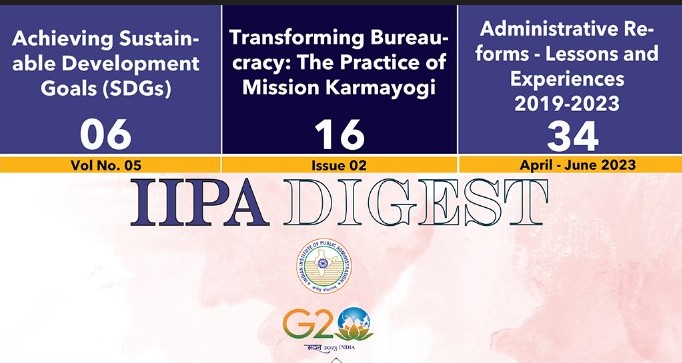
21-Jul-2025
Technology has immense potential to bring government and citizens closer. Today technology has become a powerful tool to empower citizens as well as a...
Srinivas V
Source: Magazines

21-Jul-2025
AbstractThe case highlighted the issue of favouritism and organisational politics at Swift University, based in Delhi. Dr. Mayank is the primary prota...
Chaudhary Narendra Singh
Source: Journals
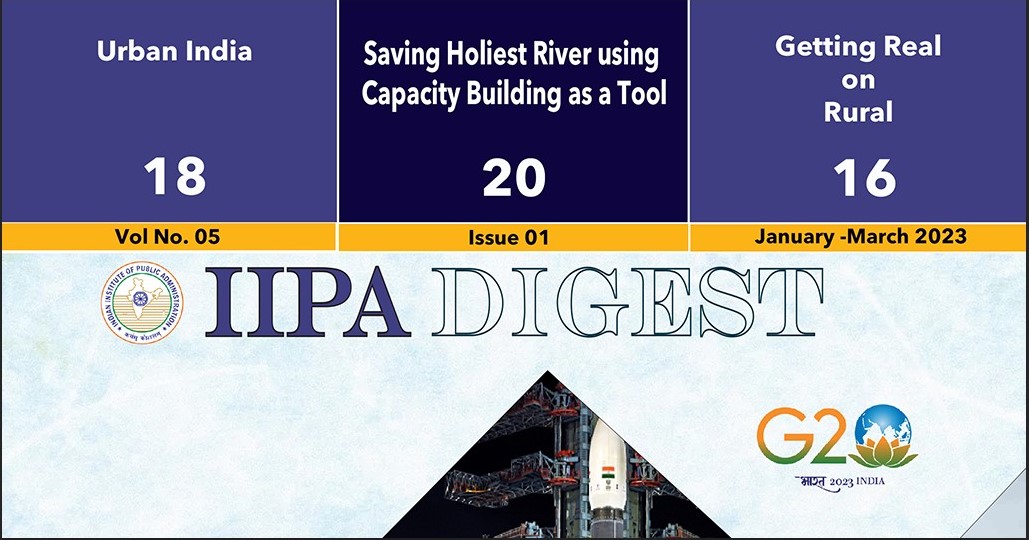
21-Jul-2025
I am extremely honoured for having given this opportunity to present the initiatives taken by Uttar Pradesh, to achieve the vision of Good Governance....
Srinivas V
Source: Magazines
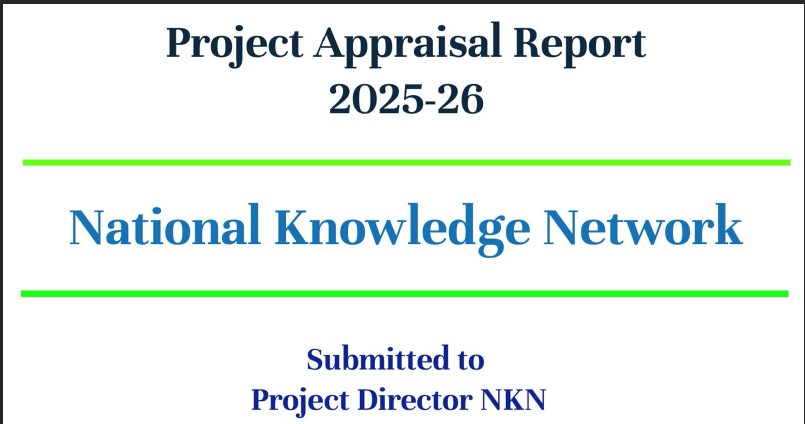
18-Jul-2025
The National Knowledge Network (NKN) is a visionary initiative launched by the Government of India to bolster the country’s digital infrastructure f...
Malhotra Charru
Source: Reports

18-Jul-2025
Stay informed about the latest updates, activities, branch events, and upcoming programmes of the Institute through the IIPA Newsletter....
Tripathi Surendra Nath
Source: Newsletter
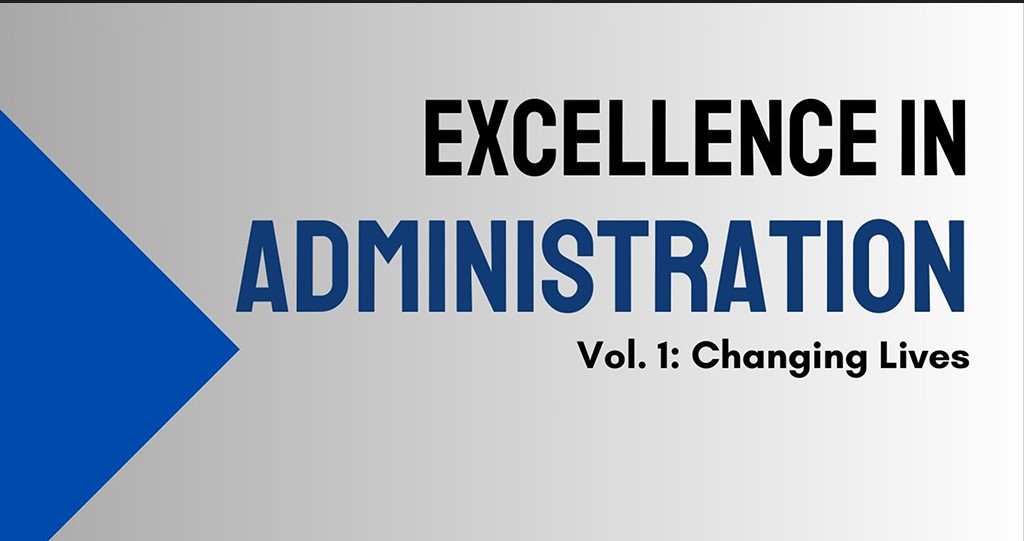
18-Jul-2025
In a nation as diverse and vibrant as India, the potential for sports to transform lives is immense. Sports are not merely a form of entertainment; th...
Goel Shantanu
Source: Books

17-Jul-2025
This paper examines changes in the existing model of training civil servants in the context of the personnel policy pursued in the Kyrgyz Republic sin...
S Murzaev
Source: Books

17-Jul-2025
The region of Jammu and Kashmir has long been characterized by a complex interplay of geopolitical tensions, socio-economic challenges, and cultural d...
Grewal NS
Source: Books

17-Jul-2025
This paper examines the philosophical foundations and practical applications of Antyodaya and Sarvodaya in Indian socio-political thought....
Choudhary Sujit Kumar
Source: Books

17-Jul-2025
The text outlines the reasons and consequences of constitutional reforms in the organization of state power in the Kyrgyz Republic in 2021....
Akmataliyev Almazbek A
Source: Books

17-Jul-2025
“The image of a country is not just about economic and military strength. The soft face of a country also makes a difference. ...
Pathania Vishal
Source: Books

17-Jul-2025
This paper investigates the profound transformation of the Yamuna River in India, tracing its evolution from a physical resource to "Yamuna Maiya," a ...
Bihari Saket
Source: Books

17-Jul-2025
Since 1945, Korea has been regarded as a representative developmental state that achieved rapid economic growth. However, democratisation in 1987 and ...
Jaeho Eun
Source: Books

17-Jul-2025
The digital revolution has fundamentally transformed the landscape of public administration, giving rise to e-governance as a pivotal approach for enh...
Singh Sandeep, VM
Source: Books

17-Jul-2025
The National Education Policy (NEP) 2020 marks a significant transformation in India's education system, replacing the NPE 1986 with a more inclusive,...
Mittal Shweta
Source: Books

17-Jul-2025
As an initial output of the joint research between the Korean Institute of Public Administration (KIPA) and the National Academy of Governance (NAOG),...
Kang Jeong Seok, Choi Hemin, Oh Seyoung
Source: Books

17-Jul-2025
Street vendors are an integral part of the urban informal economy in India, providing essential goods and service that cater to the diverse needs of c...
Sihag Rajesh
Source: Books

17-Jul-2025
This paper examines the critical role of communication in driving India's economic growth within the context of its diverse societal structure and the...
Thakur Binay
Source: Books

17-Jul-2025
This article outlines the stages of civil service reform in Mongolia and evaluates the specific activities implemented during each stage, along with t...
Dorj Baigal, Mandakh Bayanmunkh
Source: Books

17-Jul-2025
Millets, often referred to as "smart grains," have been integral to traditional diets in India for centuries. Among these, Ragi (finger millet) stands...
Gautam Sunil
Source: Books

17-Jul-2025
Amidst escalating climate crises, technological upheavals, and growing socioeconomic disparities, this paper delves into the timeless relevance of Gan...
Jain Neetu
Source: Books

17-Jul-2025
This paper aims to present insights, results, and stages of administrative reform in Mongolia over the past 30 years....
Yadamsuren Byambayar, Tumendemberel Tumentsogtoo
Source: Books

17-Jul-2025
Access to safe drinking water is not merely a fundamental human right; it is a cornerstone of public health, economic development, and social equity. ...
Ashok A
Source: Books

17-Jul-2025
This paper explores the growing inclusiveness of India's banking sector, tracing its transition from a primarily government-controlled model to a more...
Jaiswal Vicky, Mishra Chaitali
Source: Books

17-Jul-2025
This paper outlines the century-long history of Mongolia’s civil service training institution, the National Academy of Governance (NAOG), which play...
Dulamsuren Surenchimeg
Source: Books

17-Jul-2025
The "One Nation One Ration Card" (ONORC) scheme, launched in 2020 under the National Food Security Act (NFSA), represents a transformative shift in In...
Singh Inderjit
Source: Books

17-Jul-2025
India has committed to achieving developed nation status by the centenary of its independence, leveraging cutting-edge technologies including AI tappi...
Jodha Vijay Singh
Source: Books

17-Jul-2025
This article explores the value and statehood of Mongolia by utilising Woodrow Wilson’s categorisation of “Judging by the constitutional histories...
Yadam Dolgorjav
Source: Books

17-Jul-2025
Education stands as the bedrock of human development, a force capable of unlocking individual potential and driving societal transformation....
Kumar Ramesh
Source: Books

17-Jul-2025
This paper examines India's economic trajectory through the lens of its demographic dividend a substantial youth population exceeding 50% under age 25...
Singh Vipul
Source: Books

17-Jul-2025
Over the last decades, Better Regulation has become a major reform topic at the federal and-in some cases-also at the Länder level....
Sabine Kuhlmann, Sylvia Veit
Source: Books

17-Jul-2025
Education has long been recognized as a cornerstone for societal transformation, serving as a powerful catalyst for economic growth, social cohesion, ...
Tripathi Vishal Mani
Source: Books

17-Jul-2025
This paper explores India's journey towards achieving universal health coverage (UHC) and health for all, focusing on the challenges and strategies fo...
Taneja Pawan Kumar
Source: Books

17-Jul-2025
Since the reform and opening up, China’s leadership training has experienced three stages of development: the initial stage of leadership training a...
Wenyan Weng, Bai Xuezhu
Source: Books

16-Jul-2025
Organ transplantation emerged as a critical intervention for patients suffering from end-stage organ failure, offering them a renewed chance at life.�...
Somasekharan Manoj
Source: Books

16-Jul-2025
Healthcare in rural India presents unique challenges and opportunities. While global health metrics emphasize indicators like life expectancy, mortali...
Damaraju Sriram Chandra
Source: Books

16-Jul-2025
The “Internet plus” government service reform in China has progressed through three stages, namely one-stop service, one-window service, and compa...
Ye Lan
Source: Books

16-Jul-2025
The COVID-19 pandemic, which emerged in late 2019, has profoundly impacted global health systems, economies, and societies. ...
Singh Varaich Vikram Jeet
Source: Books

16-Jul-2025
This paper explores the evolution of Indian welfare philosophy from Gandhi's nonviolent resistance to contemporary governance. It traces how the sacri...
Dwivedi Manan
Source: Books

16-Jul-2025
Like most other countries around the world, after the emergence of the COVID-19 pandemic, Bangladesh's education system has undergone a radical change...
Noor Shamim, Shaoun Saharin Priya
Source: Books

16-Jul-2025
Health is a fundamental human right and a critical indicator of development. The 2030 Agenda for Sustainable Development emphasizes the importance of ...
Nakil Ravinandan Ganpat
Source: Books
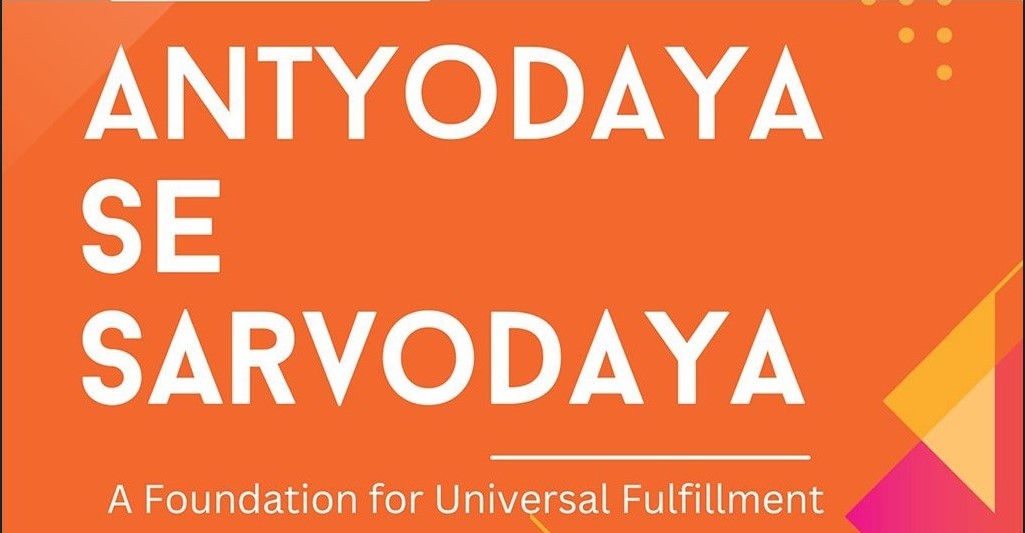
16-Jul-2025
Despite its remarkable economic ascent, India's trajectory towards sustainable and inclusive prosperity is threatened by persistent economic inequalit...
Singh Vikas
Source: Books

16-Jul-2025
In this article, published reports have been used for analysing state-wise status of SDGs achievements and their correlations with attainments in area...
Shekhar Chandra Kumar, Sharma Manoj
Source: Books

16-Jul-2025
Loss of governance reform efficacy is an identified entrenched institutional problem in systems. Reform, anywhere, is a sticky material because holder...
Rajan Amitabh
Source: Books
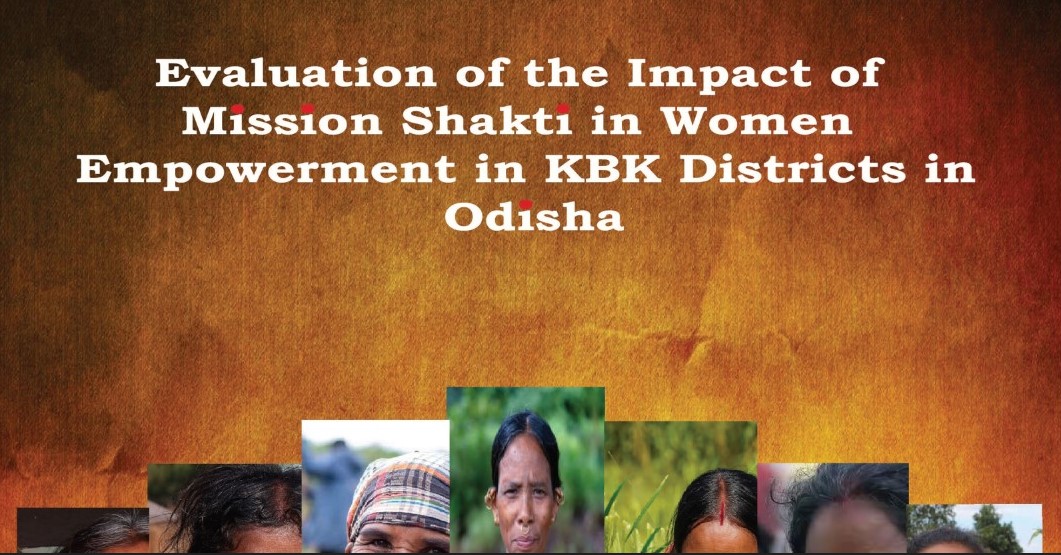
14-Jul-2025
National Commission for Women (NCW) has entrusted the task to conduct a study on ‘Evaluation of the Impact of Mission Shakti in Women Empowerment in...
Tripathi Surendra Nath, Mohapatra Gadadhara
Source: Reports
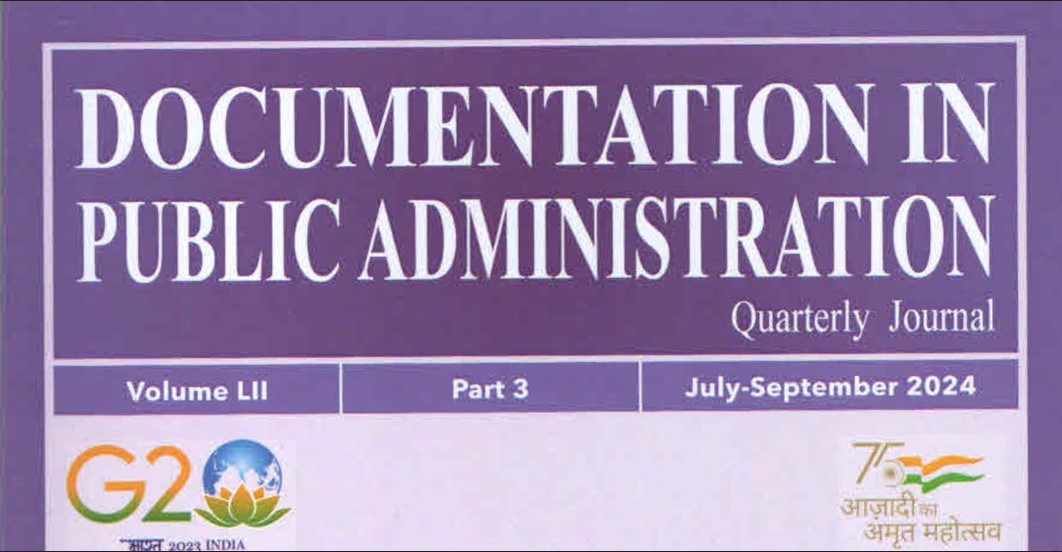
14-Jul-2025
List of Periodicals Covered, Subject Index, Author Index, Subject Term Index, Book Notes, Index to Book Reviews...
Tripathi Surendra Nath
Source: Journals
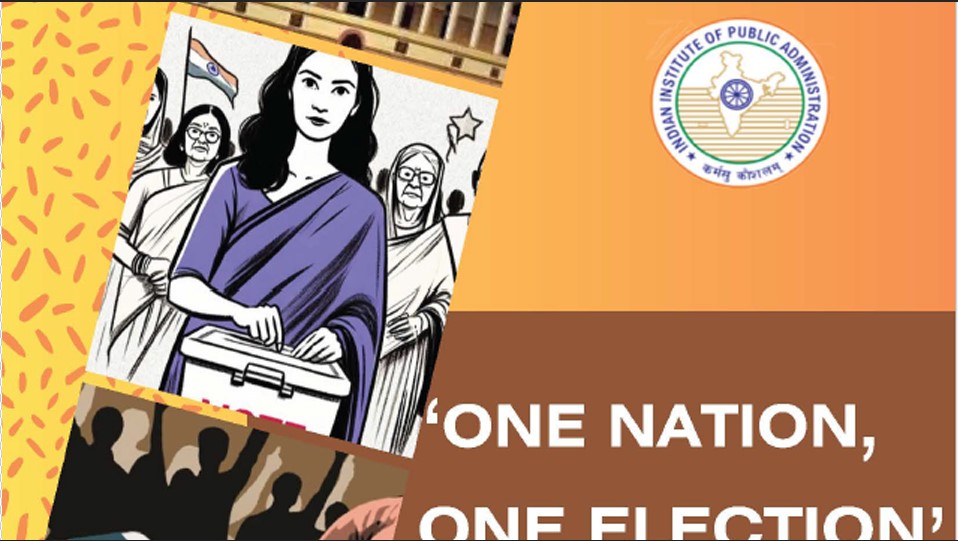
11-Jul-2025
"Democracy' and 'free and fair election' are inseparable. Elections are the centerpiece of democracy; it is difficult to visualize democracy without e...
Chadah Sapna
Source: Policy Papers
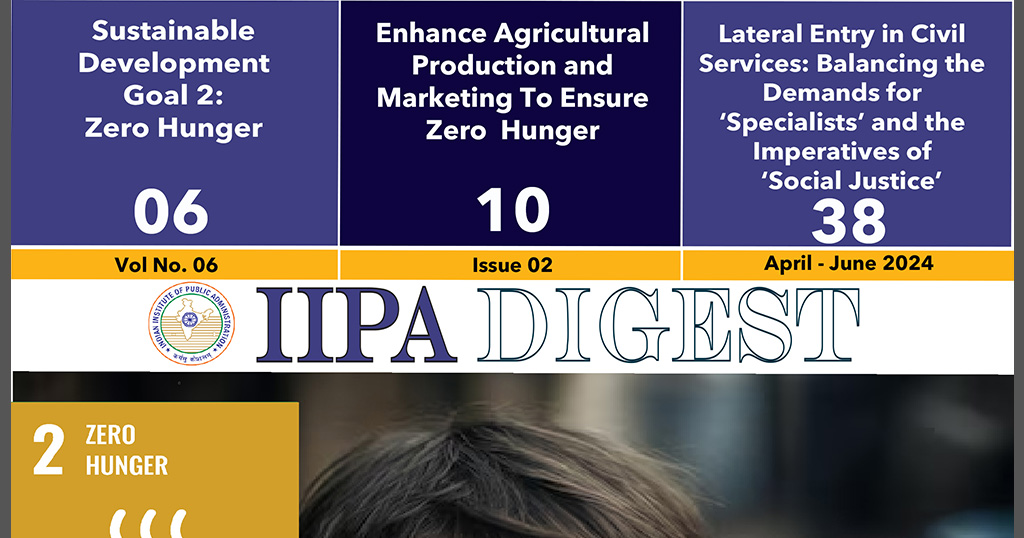
30-Jun-2025
The Vachathi case, a brutal incident of state violence against a marginalized tribal community in Tamil Nadu, India, exemplifies the intersectionality...
Balasubramaniam Bhamathi
Source: Magazines

27-Jun-2025
Converting government institutions into community institutions is often posed as an impossible challenge....
Sinha Amarjeet
Source: Magazines

27-Jun-2025
The Department of Telecommunications (DoT), Government of India has issued an alert regarding increased fraudulent mobile communications to undertake ...
Malhotra Charru
Source: Magazines

27-Jun-2025
The practice of bringing domain experts into the government is not new to India....
Gireesan K
Source: Magazines

27-Jun-2025
Poverty is pronounced deprivation in well-being. Poverty anywhere is a threat to prosperity everywhere....
Panda Pradeep Kumar
Source: Magazines
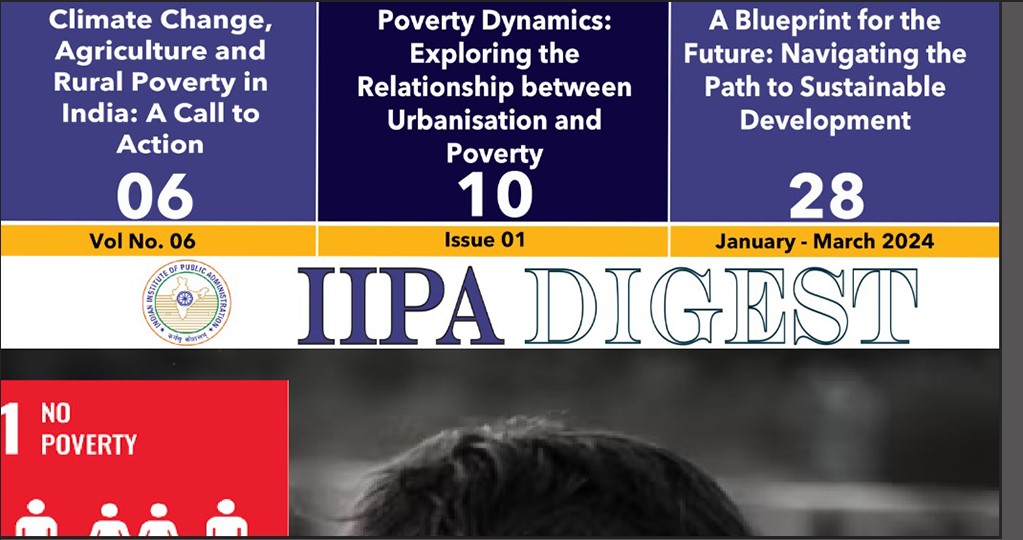
27-Jun-2025
The presence of sound mental health is described as flourishing, whereas the absence of sound mental health is characterized as languishing in life. F...
Kolhe Sarita Mishra
Source: Magazines

27-Jun-2025
Poverty and food insecurity are inextricably linked....
Knudsen Tanya
Source: Magazines

27-Jun-2025
There is an old saying that God provides even to an ant, so there is common belief that no one goes to sleep hungry. ...
Sood Kiran
Source: Magazines

27-Jun-2025
Many of the concerns, which were considered erstwhile as mundane and addressable have turned acute and insurmountable with the passage of time-such as...
Nanda Samar
Source: Magazines

26-Jun-2025
Identifying all, genuine deprived households is a social development challenge; everyone wants to be classified as poor. ...
Sinha Amarjeet
Source: Magazines

26-Jun-2025
The Jan Aushadhi Scheme envisages to ensure easy access to high quality afforble medicines for all through dedicated Jan Aushadhi Kedras....
Priya Eesha
Source: Magazines

26-Jun-2025
The 2018–2019 census study found almost 2.4 million water bodies in India. ...
Mitra Rangeet
Source: Magazines

26-Jun-2025
Over the last few decades, India’s role in global climate governance has considerably changed from a protest voice during 1970s and 1980s to activel...
Kothari Raj Kumar
Source: Magazines

26-Jun-2025
The Sustainable Development Goals (SDGs) are more than just goals but are a recognition that to end poverty and other deprivations, the world must ado...
Chukkath Meghna
Source: Magazines

26-Jun-2025
Himachal Pradesh is famous for its divine and pristine beauty. Himachal’s diverse geographical and cultural heritage serves for the diverse cuisines...
Katoch Nidhi
Source: Magazines

25-Jun-2025
India has become the most populous country in the world, surpassing China in 2023 with about 1.43 billion population and is expected to reach about 1....
Reddy Amarender
Source: Magazines
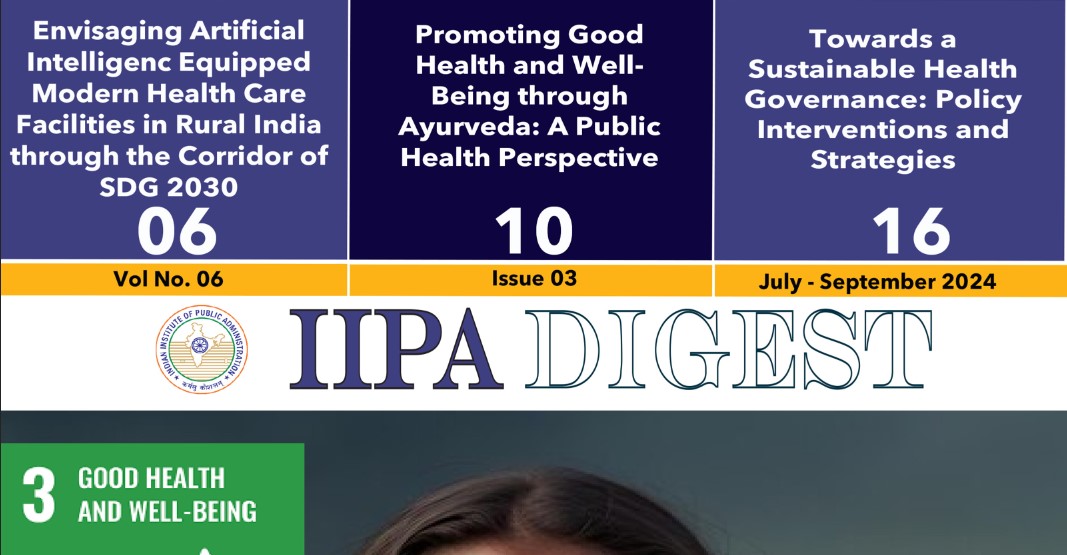
25-Jun-2025
Prof. Bibek Debroy in his surreptitious self-obituary, written before his passing away evokes the memories, ideas, understandings, loss and longings a...
Upadhyay Ranvijay
Source: Magazines

25-Jun-2025
In a world full of challenges and sometimes confusion, the use of technology and communication plays a major role, especially in public policies. To e...
Ravichander Annapoorna
Source: Magazines

25-Jun-2025
On September 1, 2023, a committee headed by former President Ram Nath Kovind explored the possibility of something called One Nation, One Election in ...
Choudhary Anika
Source: Magazines

25-Jun-2025
As the name suggests, South China Sea (SCS) is located south of Chinese mainland. It is a huge water body with an area of 3.5 million km². This area ...
Singh Anita
Source: Magazines

25-Jun-2025
In today's fast-paced world, effective communication between regulatory authorties and the public is crucial, especially in the aviation sector, where...
Abid Mohammad Iqbal
Source: Magazines

25-Jun-2025
According to Clough (2013), Tomlinson (1986), “Mangrove forests are trees, shrubs and ferns that occupy the inter-tidal areas between land and sea o...
Mitra Rangeet
Source: Magazines

25-Jun-2025
State capability and effective governance have been the focus of a few recentbooks (Somanathan; Muralidharan). The map is never the territory and it i...
Sinha Amarjeet
Source: Magazines

25-Jun-2025
The Sustainable Development Goals (SDGs) were adopted by the United Nations in 2015 as a universal call to action to end poverty, protect the planet, ...
Jawahar SS
Source: Magazines

25-Jun-2025
The Government of Karnataka (GoK) is reported to be activel considering reorganisation of Bengaluru’s local governance framework by replacing the pr...
Nargund Santosh
Source: Magazines

25-Jun-2025
The Economics of Ecosystems and Biodiversity (TEEB) is a comprehensive global initiative focused on illuminating the critical value of nature and ensu...
Patel Aditya, Tiwary Manish Kumar
Source: Magazines

25-Jun-2025
Oceans are important in climate control and disaster staging, butthey are hard to watch because of their vastness. Submarine telecommunication cable...
Charan Gorantla Sai, Sadawart Suyog Suresh, Siddharth Bansode
Source: Magazines

25-Jun-2025
Good news is that IMD has predicted 105% of the Long Period Ave rage (LPA rainfall in this monsoon and the monsoon has come 2 weeks early. The sooner ...
Kumar G Asok
Source: Magazines

25-Jun-2025
Healthcare is one of the most important factors that directly impact the quality of life and human development status of any economy. Sustainable Deve...
Gupta Namita
Source: Magazines

25-Jun-2025
Health remains one of the fundamental pivots of human development alongside education. Health is a force multiplier in the sense that it leads to the ...
Pattanayak Pingakschya
Source: Magazines

25-Jun-2025
The Sustainable Development Goals (SDGs), established by the United Nations in 2015, provide a comprehensive framework for addressing global challenge...
Saleem Salman
Source: Magazines

24-Jun-2025
Sustainable Development Goals (SDGs) epitomize global aspirations, encompassing a broad spectrum of targets aimed at fostering a prosperous, inclusive...
Shanker Amiya
Source: Magazines

24-Jun-2025
This paper examines various initiatives taken by Government of India to promote collaborative governance in various sectors. With increasing needs and...
Tripathi Surendra Nath, Misra Suresh
Source: Books
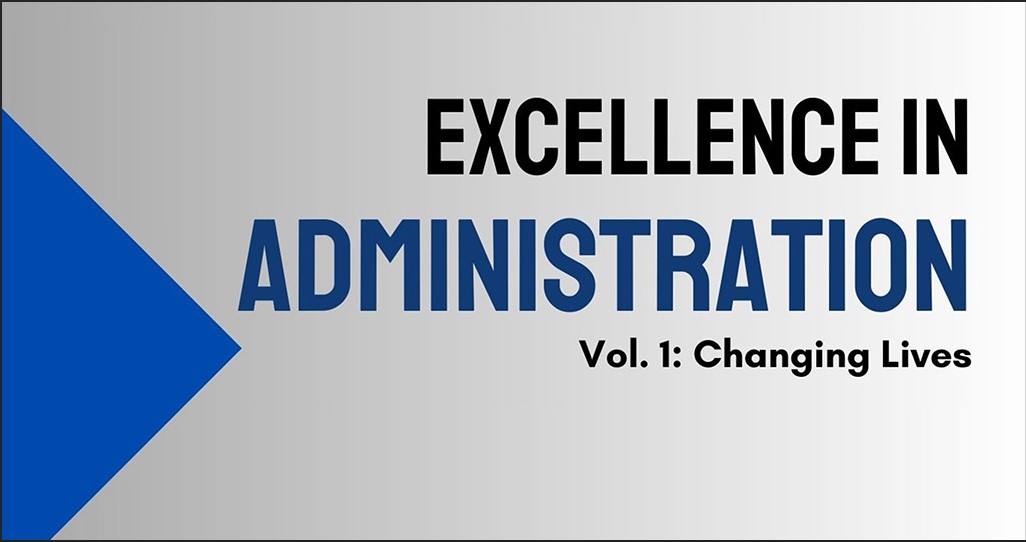
24-Jun-2025
In the vast and diverse landscape of India, regional disparities in development have long posed significant challenges to achieving equitable growth a...
AB Divya
Source: Books
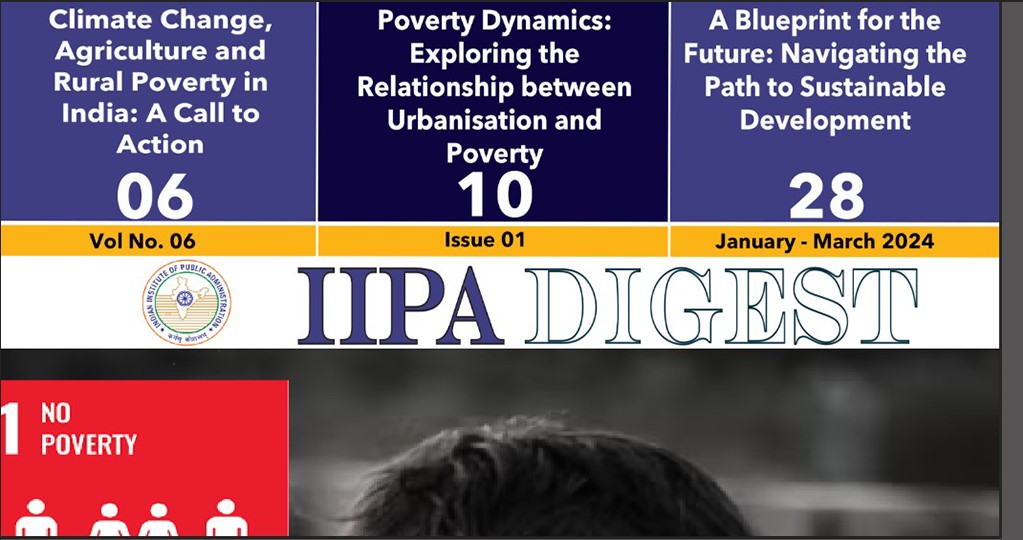
24-Jun-2025
In the era of sustainable development, the United Nations has established the Sutainable Development Goals (SDGs), one of which is the eradication of ...
Nair Arjun A, Banaula Gaurav, Kumar Saket, Biswas Souparna
Source: Magazines

23-Jun-2025
Climate change, with its far-reaching impacts, has emerged as a critical global challenge, significantly influencing various facets of human life. Am...
Malekar Chetan
Source: Magazines

23-Jun-2025
In India, National Training Policy was formed in 2012, replacing the old policy of 1996. This was needed two reasons, new areas of administration give...
Sharma Vinod K Sharma
Source: Books

23-Jun-2025
India's emergence as a global services powerhouse in the 21st century marks a profound and transformative shift. This evolution, far from a mere econo...
Vegunta Mamata
Source: Books

23-Jun-2025
Public administration, as the executive arm of the state, has tremendous responsibilities to match the needs and aspirations of the citizens of the st...
Chowdhry Sachin
Source: Books

23-Jun-2025
Stay informed about the latest updates, activities, branch events, and upcoming programmes of the Institute through the IIPA Newsletter....
Tripathi Surendra Nath
Source: Newsletter

23-Jun-2025
Stay informed about the latest updates, activities, branch events, and upcoming programmes of the Institute through the IIPA Newsletter....
Tripathi Surendra Nath
Source: Newsletter

23-Jun-2025
Stay informed about the latest updates, activities, branch events, and upcoming programmes of the Institute through the IIPA Newsletter....
Tripathi Surendra Nath
Source: Newsletter
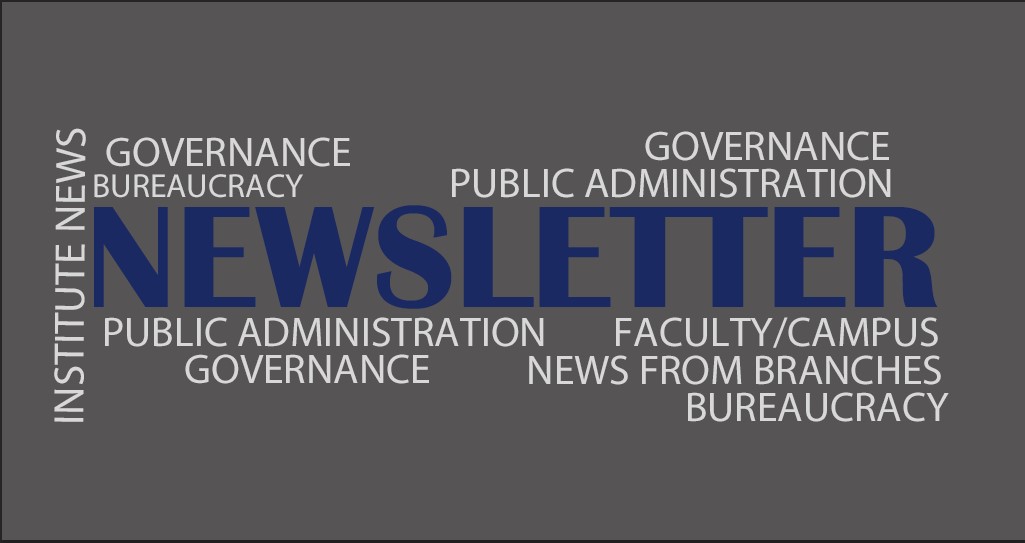
20-Jun-2025
Stay informed about the latest updates, activities, branch events, and upcoming programmes of the Institute through the IIPA Newsletter....
Tripathi Surendra Nath
Source: Newsletter

19-Jun-2025
Tribal Sustainable Development through Evidence-based Policy and Planning: A major issue in post-Independence India has been a misreading of demands o...
Tiwary Nupur
Source: Books

19-Jun-2025
As the Idiom of technological advancement takes its toll. The paper highlights a few poignant and emerging factors in the International Relations theo...
Dwivedi Manan
Source: Books

19-Jun-2025
With the deepening of democracy, increased decentralisation, increasing social and political awareness, digital penetration, shifts in demography, dem...
Vishandass Ashok
Source: Books

19-Jun-2025
"Accelerating India's Development" holistically looks at India’s growth trajectory since gaining independence – it rounds up all where it has done...
Sharma Vinod Kumar, Malhotra Charru
Source: Books

19-Jun-2025
Income and Employment Intensive Growth Agenda for India: The paper examines income and employment status in the Indian labour force to identify policy...
Pandey KK, Lata Kusum
Source: Books

19-Jun-2025
An Analysis of India's Social Welfare Programs: In a democracy, the state's role is to promote societal welfare. According to Aristotle, the state sho...
Singh Amit K
Source: Books

19-Jun-2025
Digital Innovations in Social Protection: Trends, Challenges, and Solutions: The integration of digital technologies into social protection systems re...
Mohapatra Gadadhara
Source: Books

18-Jun-2025
Access to justice is a fundamental tenet of the rule of law. It is paramount to enable people to exercise their rights, confront prejudice, make their...
Chadah Sapna
Source: Books

18-Jun-2025
One of the most crucial aspects of our society is law enforcement, which deals with issues of law and order nationwide. It is an essential component o...
Pandey Surabhi
Source: Books

18-Jun-2025
India’s Vision for 2047 aims to transform the nation into a developed country, with healthcare being pivotal for this progress. Achieving universal ...
Taneja Pawan Kumar
Source: Books

18-Jun-2025
Several challenges linger in the Indian education system, like rote learning, the non-existence of practical skills among students, and disparities in...
Mittal Shweta
Source: Books

18-Jun-2025
Social development is expected to promote holistic improvement of individuals, institutions and their surrounding environments. Looking at the pace of...
Bihari Saket
Source: Books

18-Jun-2025
India is the largest democracy in the world inhabited by about 1.36 billion people over an area of 3287 thousand square kilometers according to an est...
Alok VN
Source: Books

18-Jun-2025
Neoliberal policies pursued by India since 1990s have created a space for private enterprises hitherto occupied by the state entities, unshackled the ...
Chowdhry Sachin
Source: Books

18-Jun-2025
This Chapter highlights the gradual transformation from Personnel Administration to Strategic Human Resource Management over the years in Government o...
Jain Neetu
Source: Books

18-Jun-2025
Robust statistical data forms the cornerstone of an informed governance system. This paper studies the statistical system and data dissemination in th...
Debnath Roma M
Source: Books

18-Jun-2025
In the Amrit Kaal (golden period) of independent India, the ‘citizen first’ approach guides public governance by deepening the outreach of service...
Alok VN
Source: Books

19-Jun-2025
In modern societies, with the increasing role of the state in social and economic fields, emphasis on the quality of its governance is of prime concer...
Pathania Mamta
Source: Books

18-Jun-2025
This paper discusses the concept of good governance and its relations with the electoral politics in Indian context. It highlights the various strateg...
Misra Suresh
Source: Books

18-Jun-2025
With the Indian government’s vision to transform India into a developed nation by 2047, marking hundred years of independence, it has become of high...
Singh Shyamli
Source: Books

18-Jun-2025
The vision of Viksit Bharat can be realised through Viksit States, and that the aspiration of Viksit Bharat should reach the grassroot level i.e. to e...
Tripathi Surendra Nath
Source: Books
